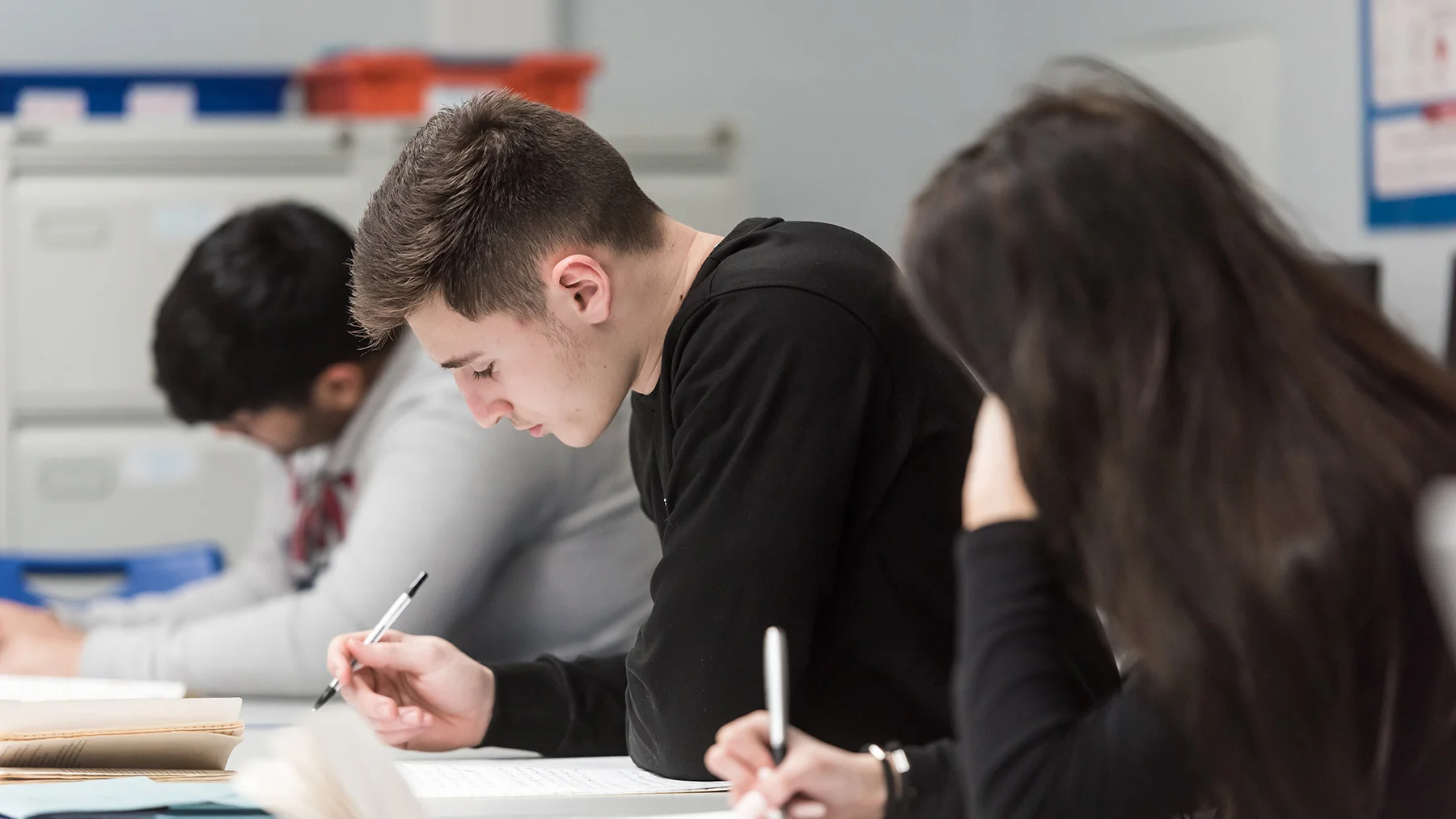
Welcome to the IB Diploma at Varndean College
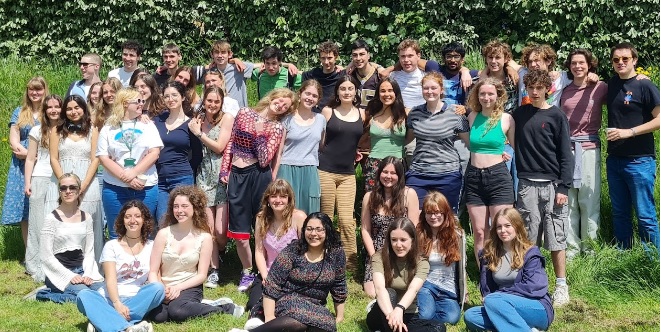
For those who haven’t heard of the International Baccalaureate Diploma before, the choices can be daunting.
Here at Varndean College we have been running the IB since 2007 and believe the Diploma programme offers a broad and rewarding alternative to A-level study which empowers learners to be active global citizens who pursue a range of destinations post-18.
The IB Diploma at Varndean provides a unique opportunity for the young people of Sussex to retain a broad curriculum offer post-16, widen their global understanding and obtain world beating results ensuring they are able to study at some of the best universities in the UK.
The aim of this page is to explain the key features of the IB Diploma and why here at Varndean College we are proud to offer the programme and currently stand as the only state funded sixth form college or school in Sussex to offer the Diploma.
The IB Diploma is an exciting and popular alternative to A Levels. You should consider it seriously if you:
are a well-organised student who enjoys a wide range of subjects and activities and who is keen not to narrow your education too early
want a course that will extend and challenge you personally and intellectually
want a course that will encourage you to think independently and to speak and write well in more than one language
want to keep all your university and career options open at 16 plus
want an international qualification, which is recognised all over the world for your future career
The IB Diploma is taught worldwide and is internationally recognised and understood by universities and employers as excellent preparation for further study or employment. It is administered by the International Baccalaureate Organisation, a body which is independent of any government and which has an international perspective.
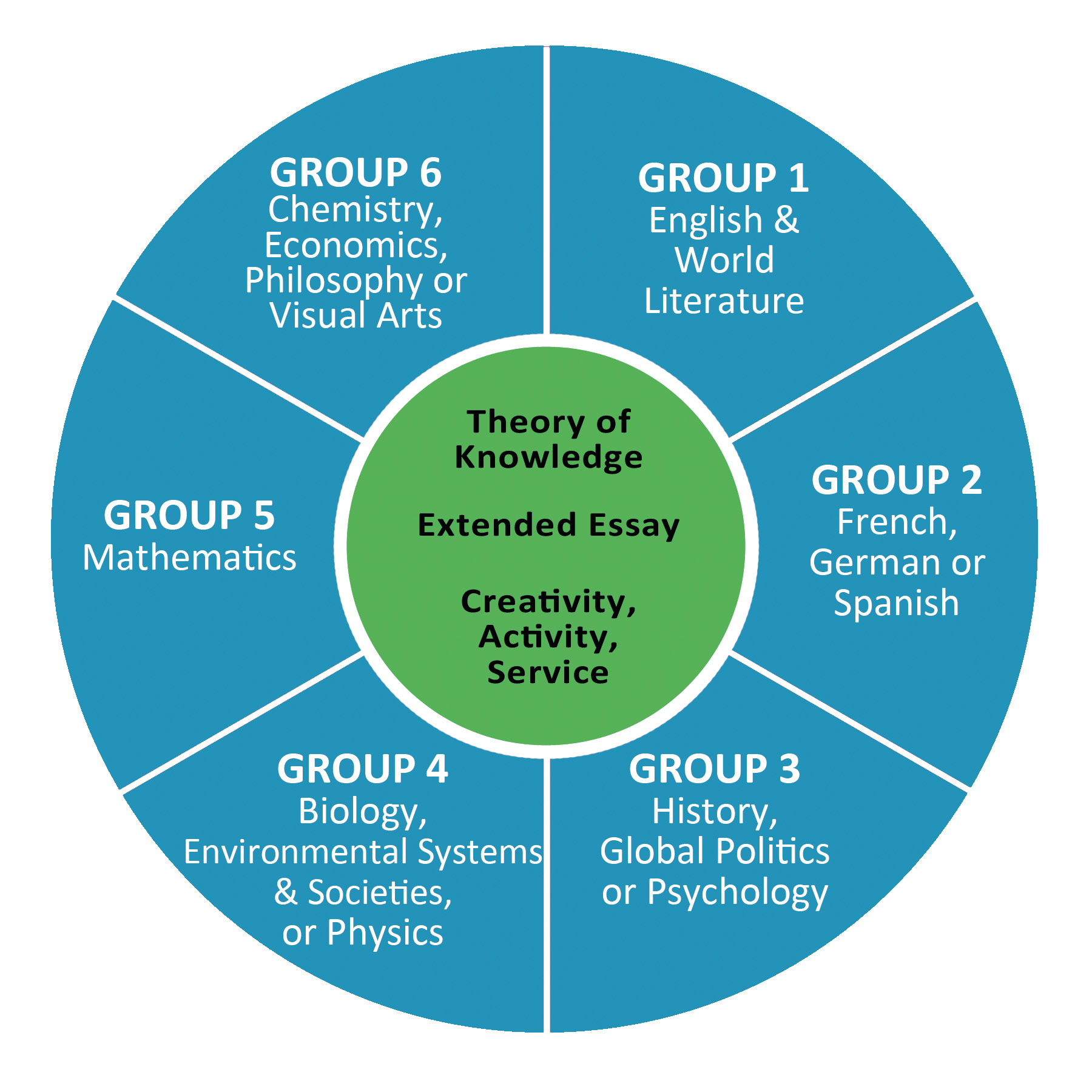
Take a look at our latest prospectus below to find out all of the answers to these questions and more!
- What is the IB Diploma?
- How is the IB different to A-levels?
- What can I study as a Diploma student at Varndean?
- What is The Core, CAS, EE and ToK?
- How is the Diploma graded?
- How would I be assessed?
- What do I need to pass?
If after exploring our prospectus and the rest of this webpage you have any further queries please do not hesitate to contact our admissions team via information@varndean.ac.uk, or contact our IB Diploma Programme Coordinator Lee Finlay-Gray directly via lzg@varndean.ac.uk.
These two short videos produced by the International Baccalaureate Organisation give some unique insight into the IB Diploma here in the UK
Want to know more about the subjects and their content?
Have a read of the Subject Briefs below, created by the IB which focus on what to expect in each subject.
You can also find the latest specifications and subject guides below for the subjects we currently offer on our IB Diploma programme.
How do our IB students perform?
We are immensely proud of each and everyone of our IB students here at Varndean College, but here are some of the most recent result headlines from May 2024 as well as some global and historical context.
- Average score 34.57 (Global 30.3)
- Pass rate 98% (Global 80.1%)
- Mean subject score 5.45 (Global 4.8)
- High grades 7-6 46.8%
- High grades 7-5 77.8%
- 35+ points 49% (Global 35.6%)
- 40+ points 13% (Global 11.1%)
- Top score 43 points
- EE pass rate 100% (Global 98%)
- EE high grades A-B = 48.94% (Global 37%)
- ToK pass rate 100% (Global 99%)
- ToK high grades A-B = 72.34% (Global 45.1%)
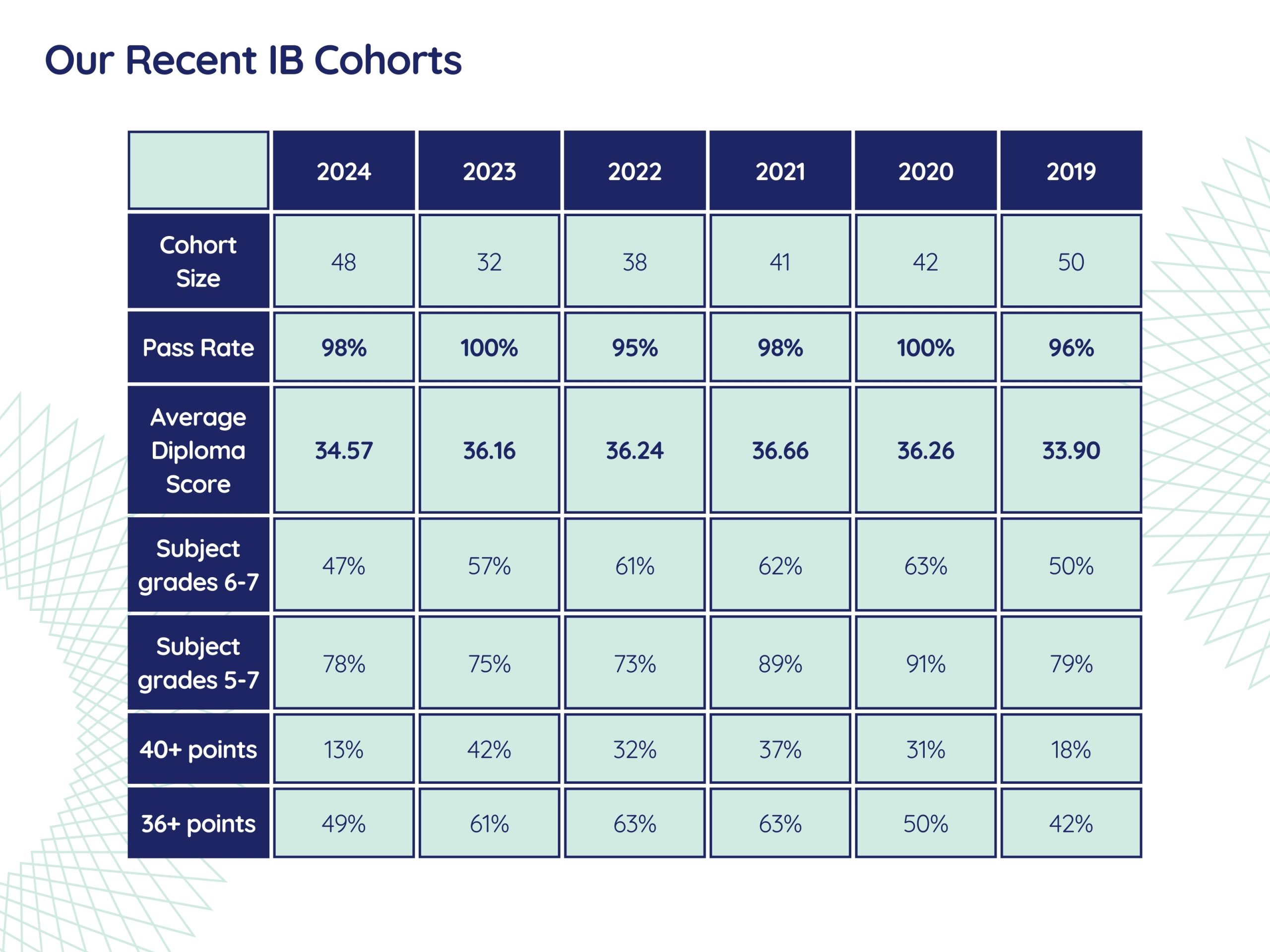
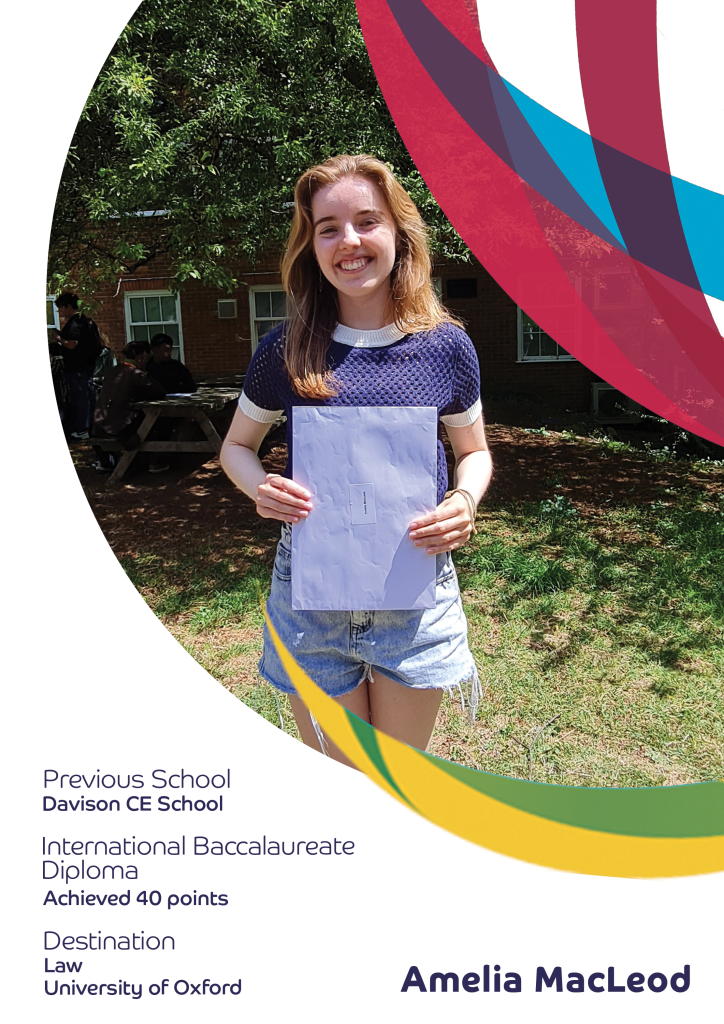
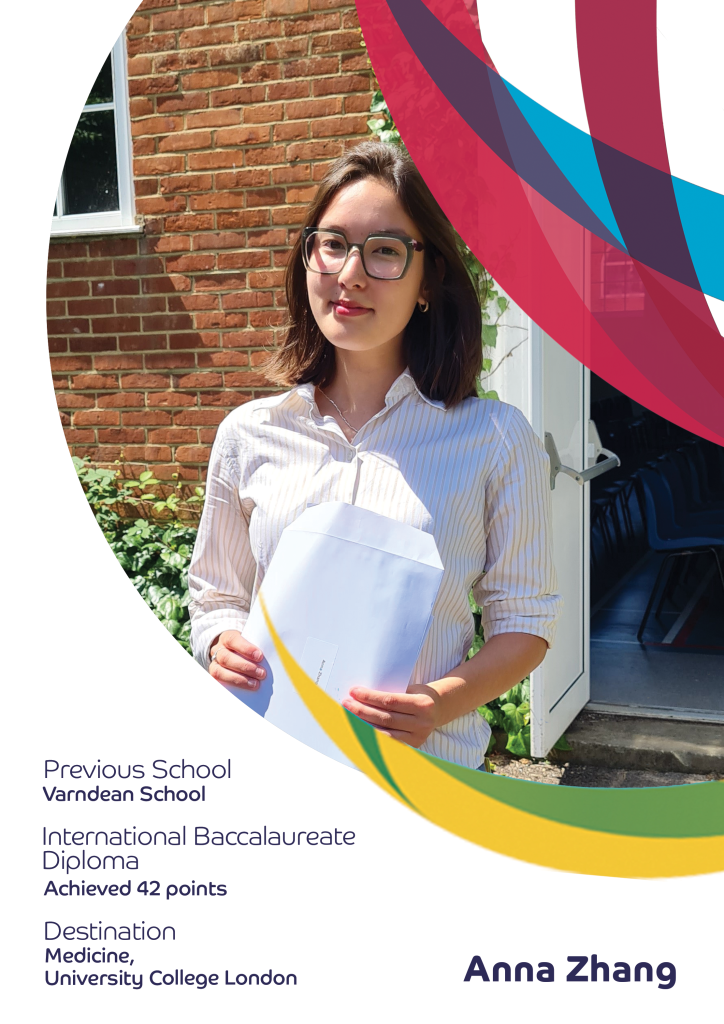
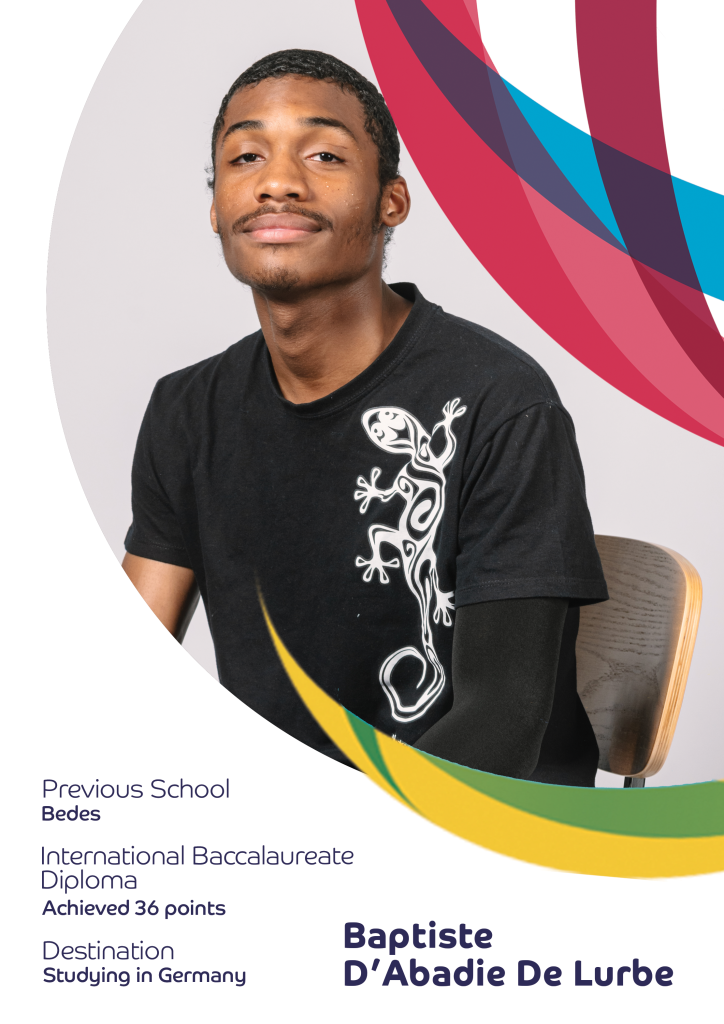
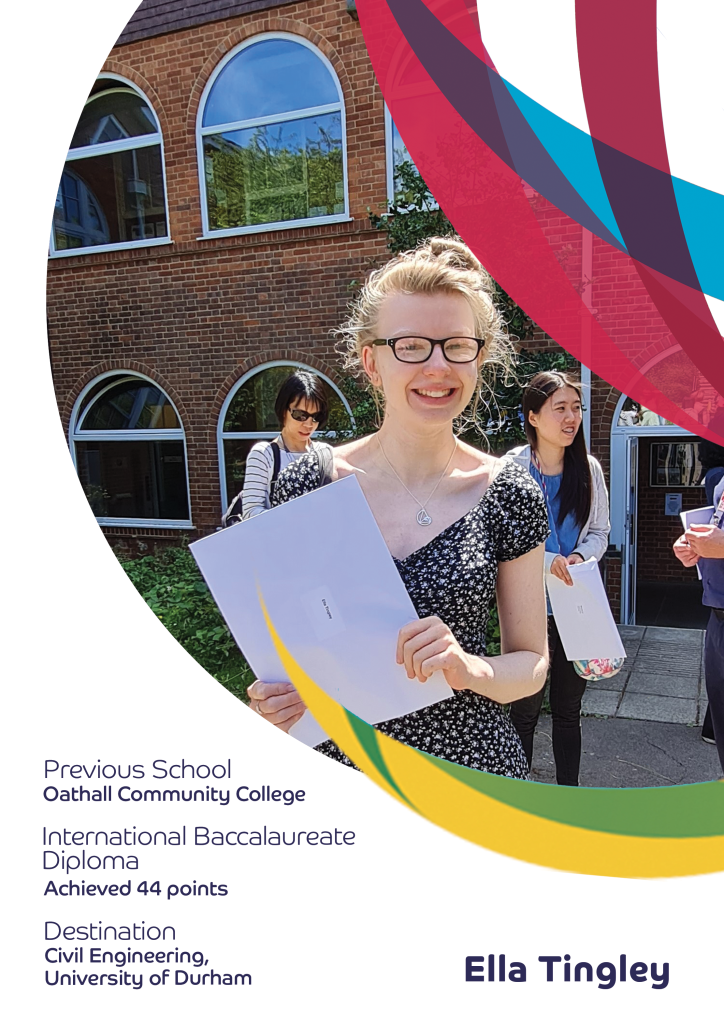
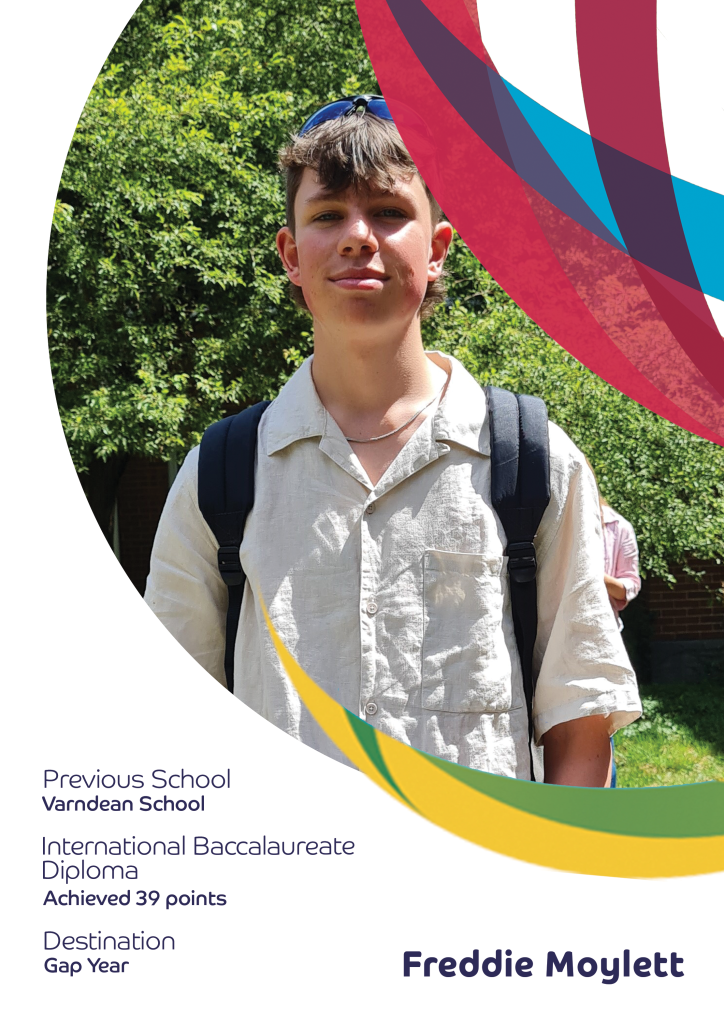
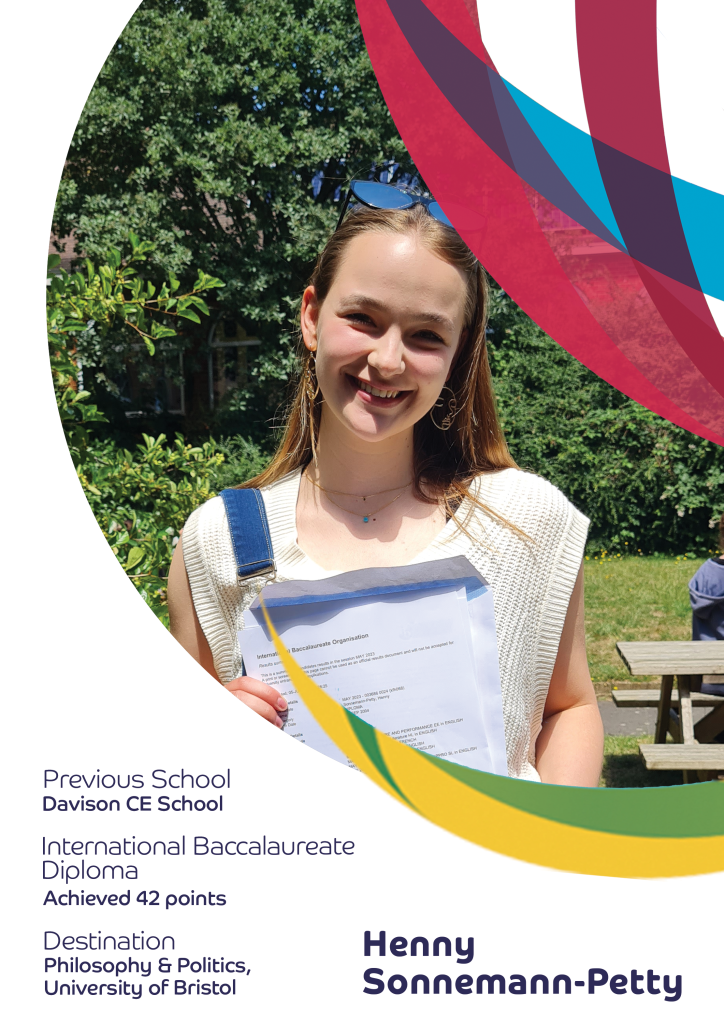
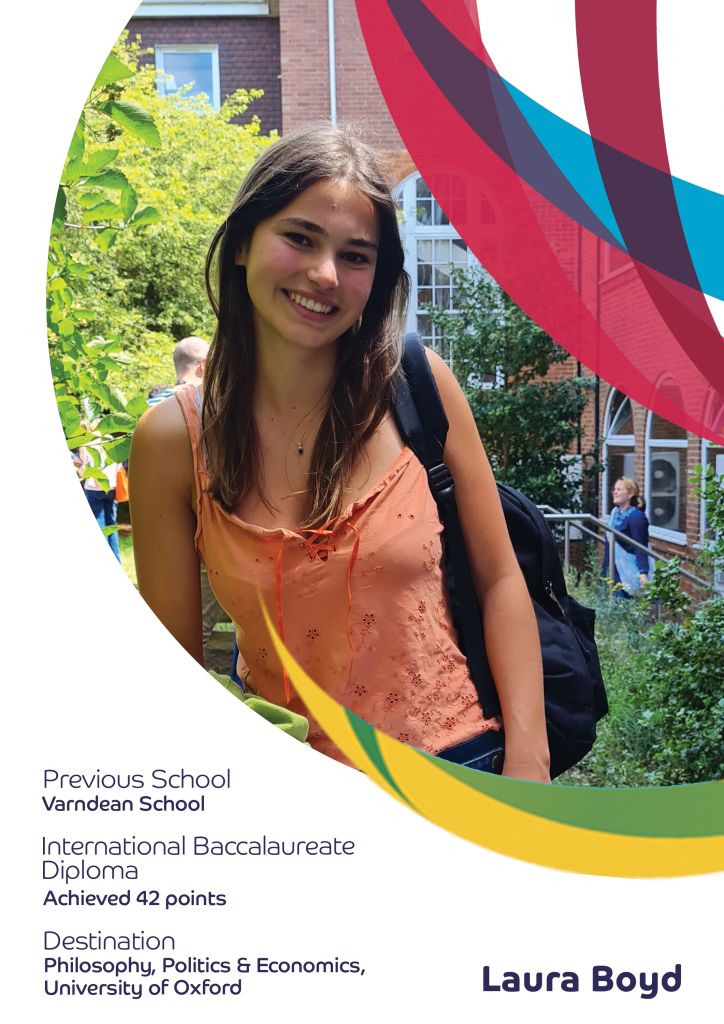
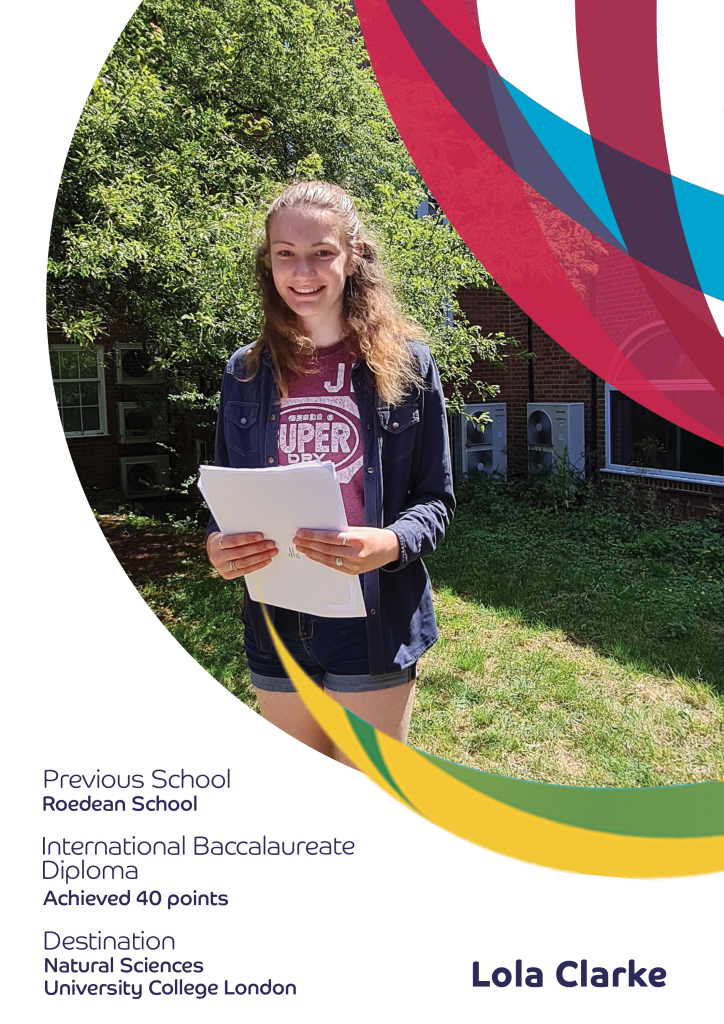
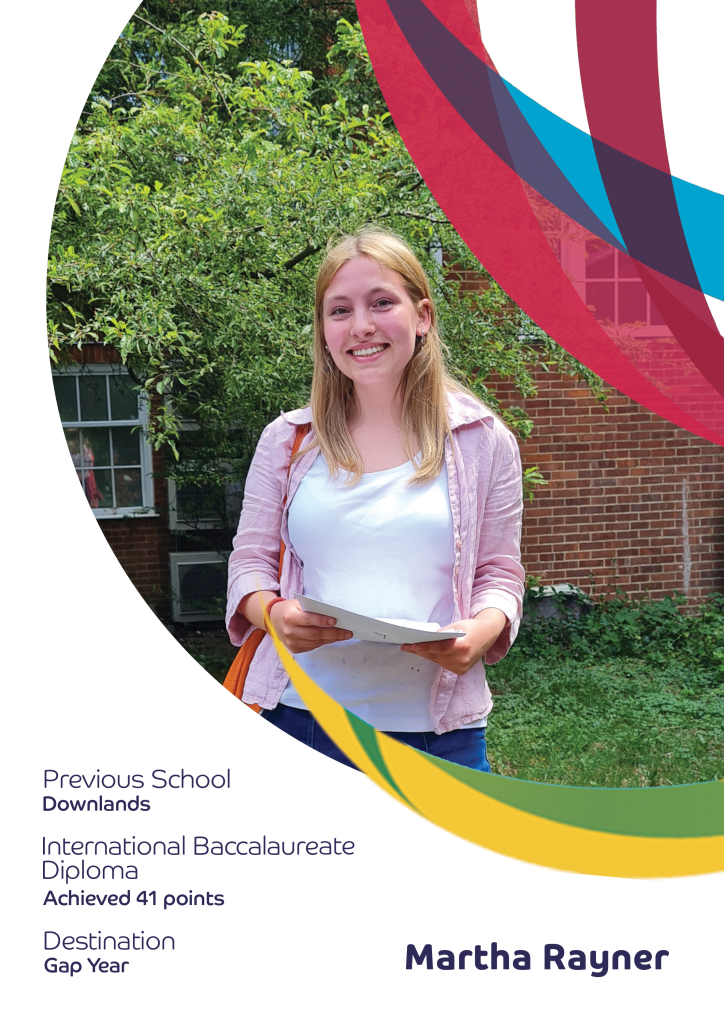
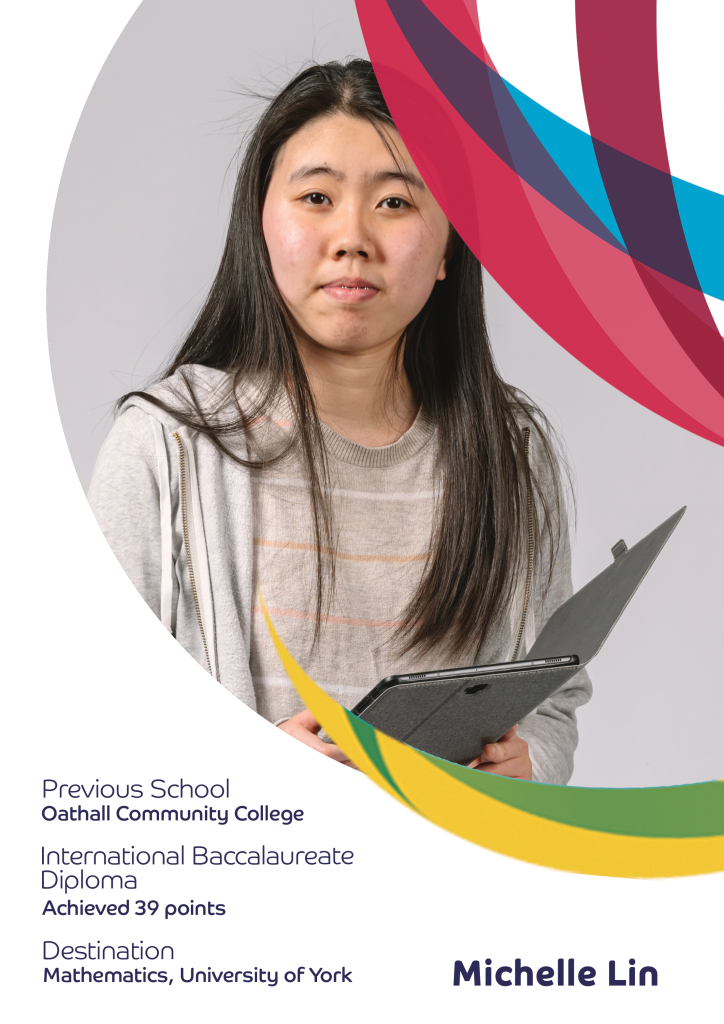
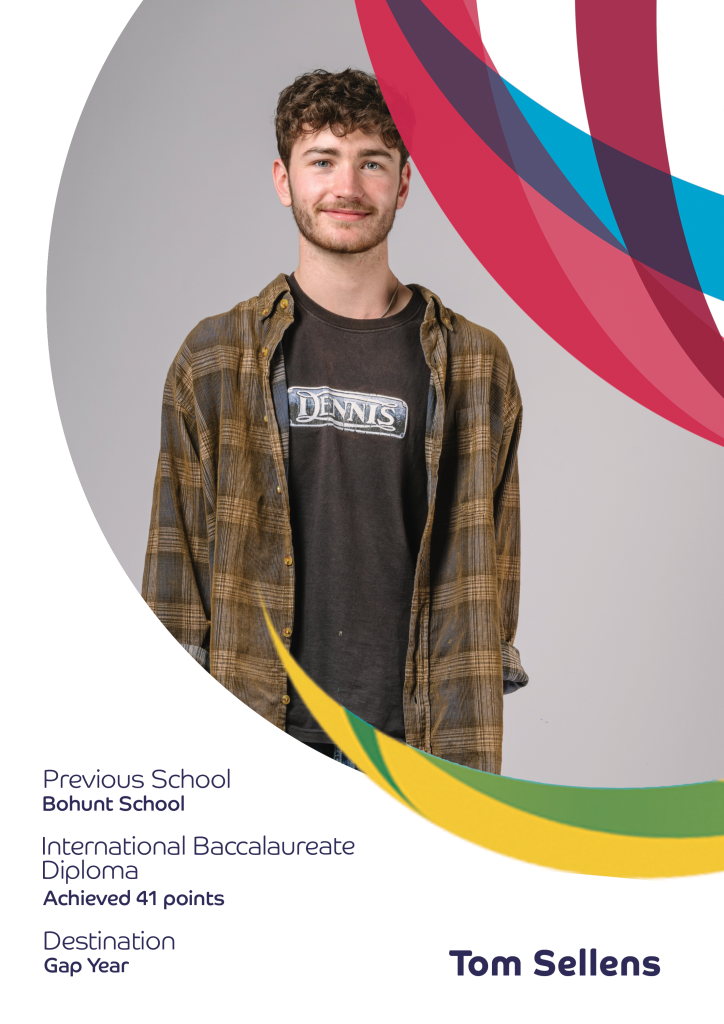
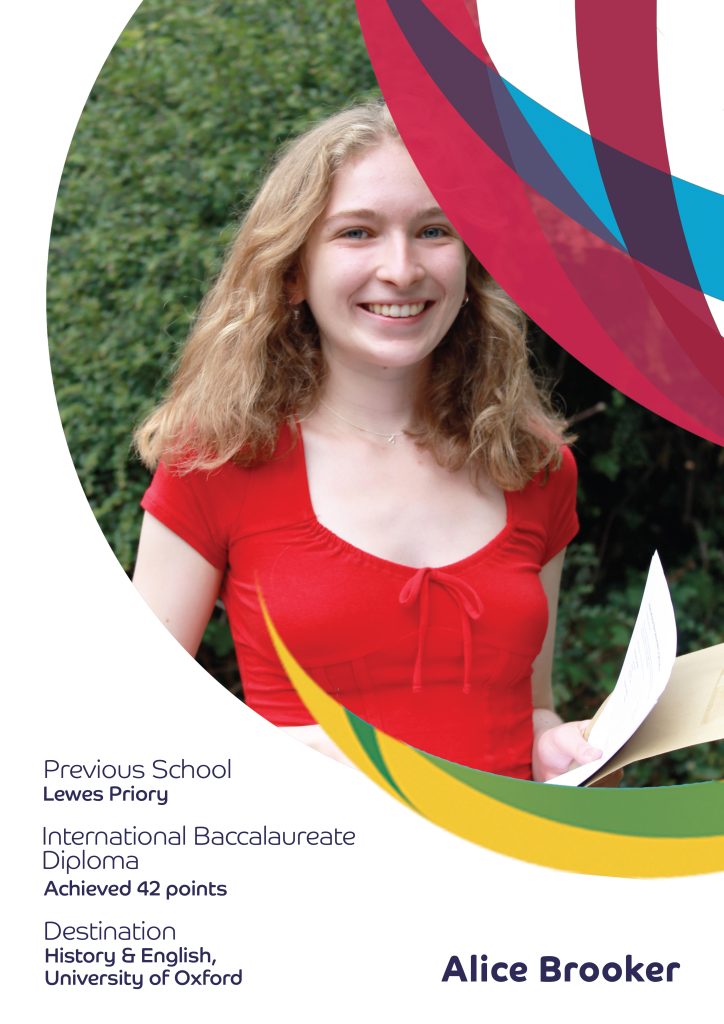
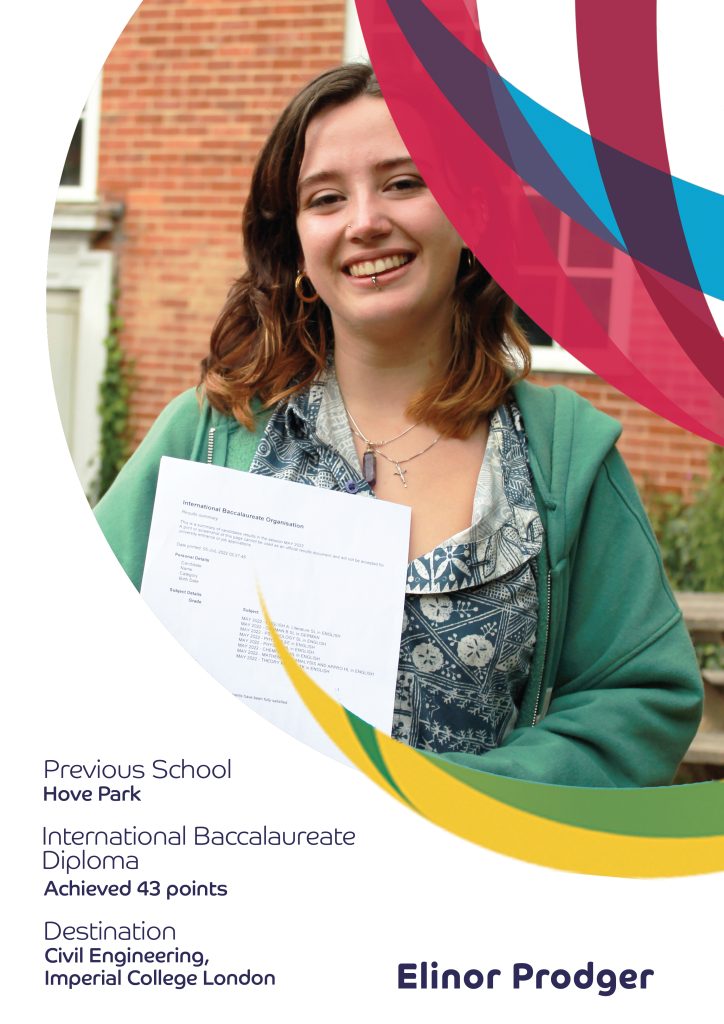
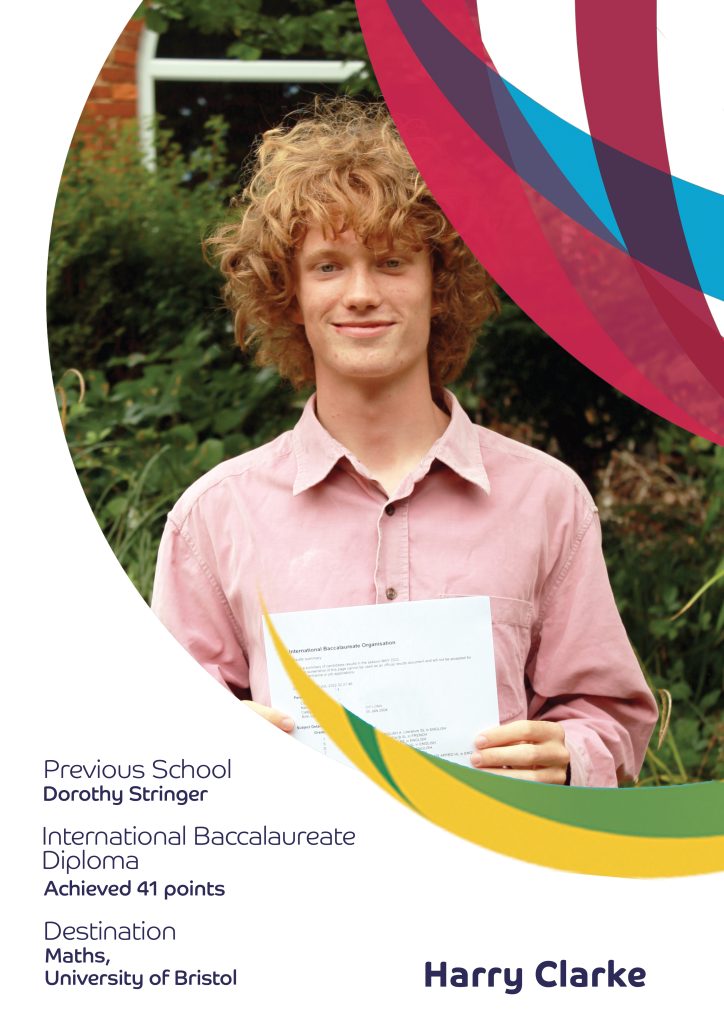
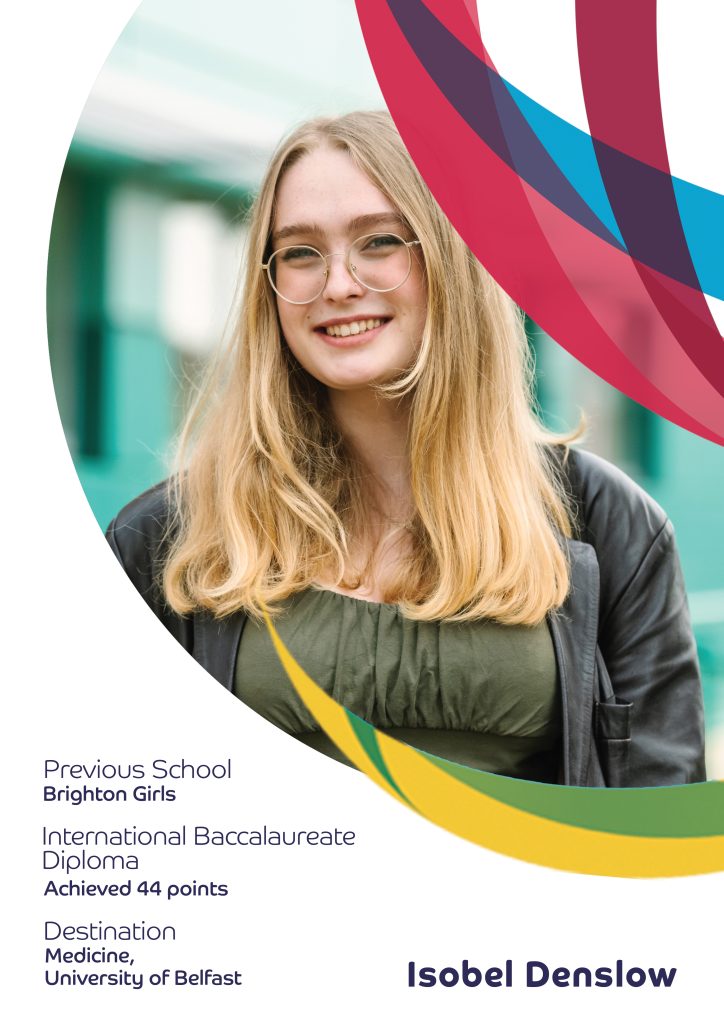
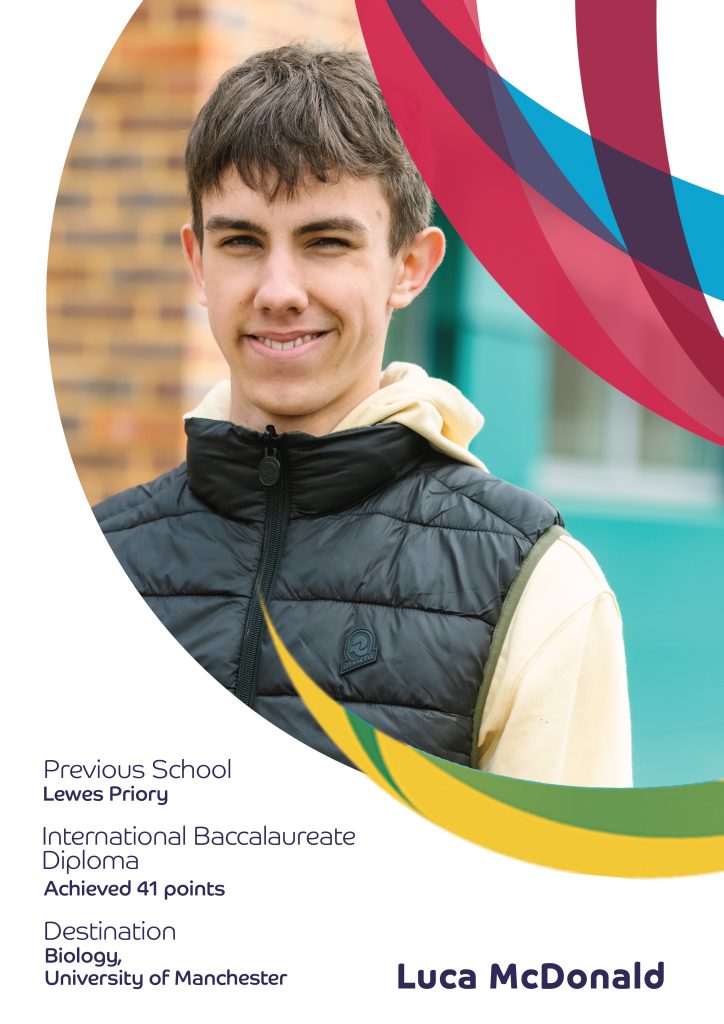
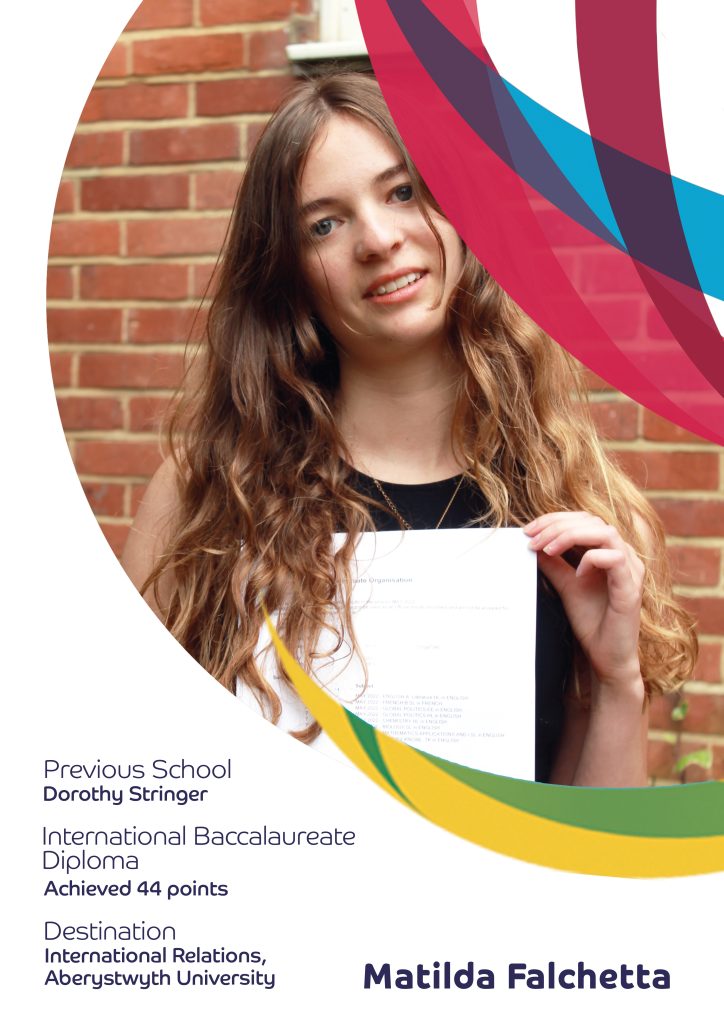
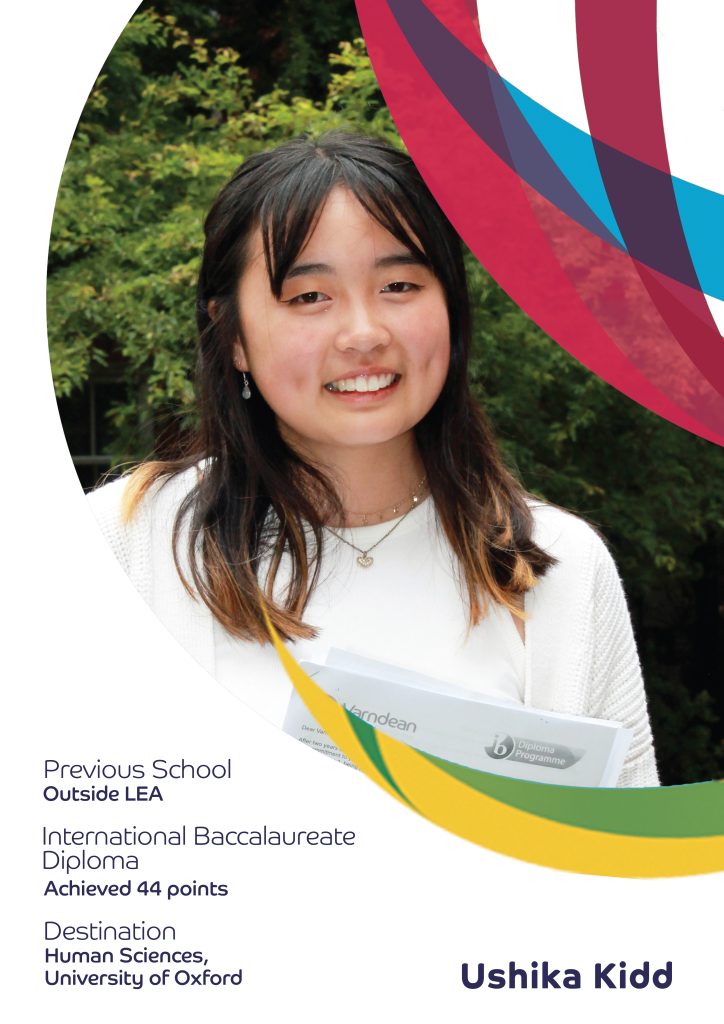
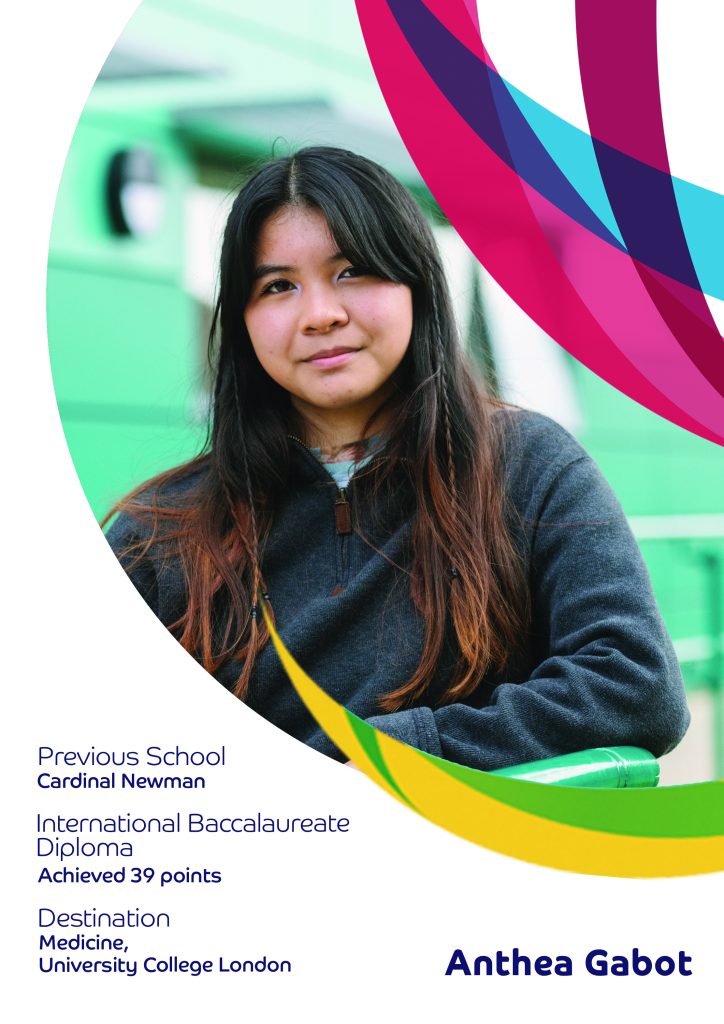
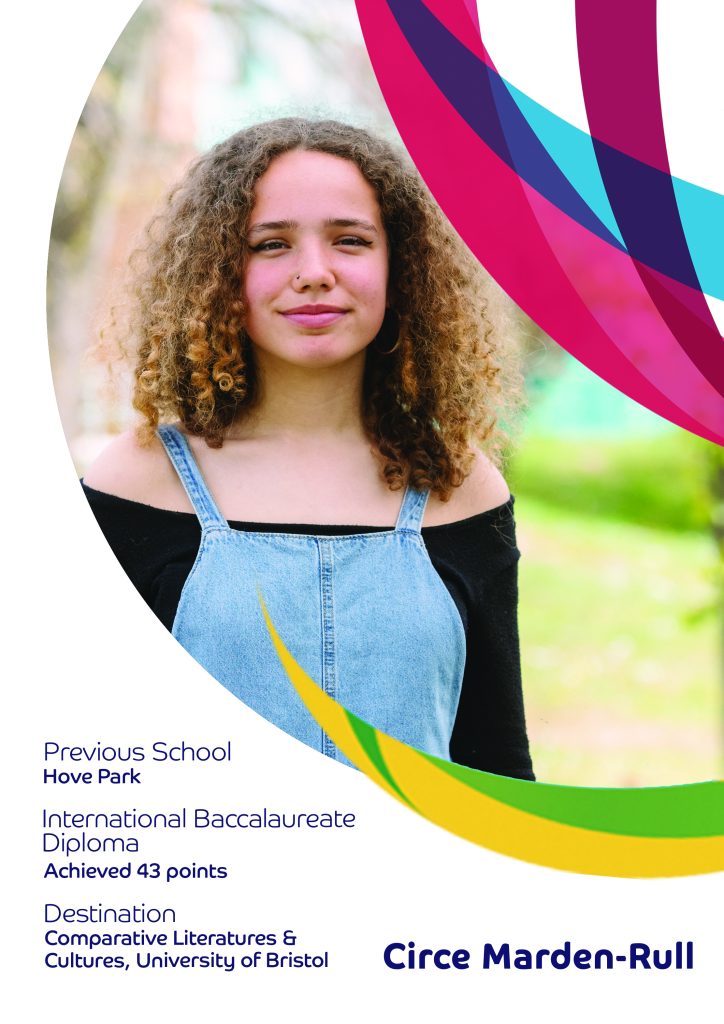
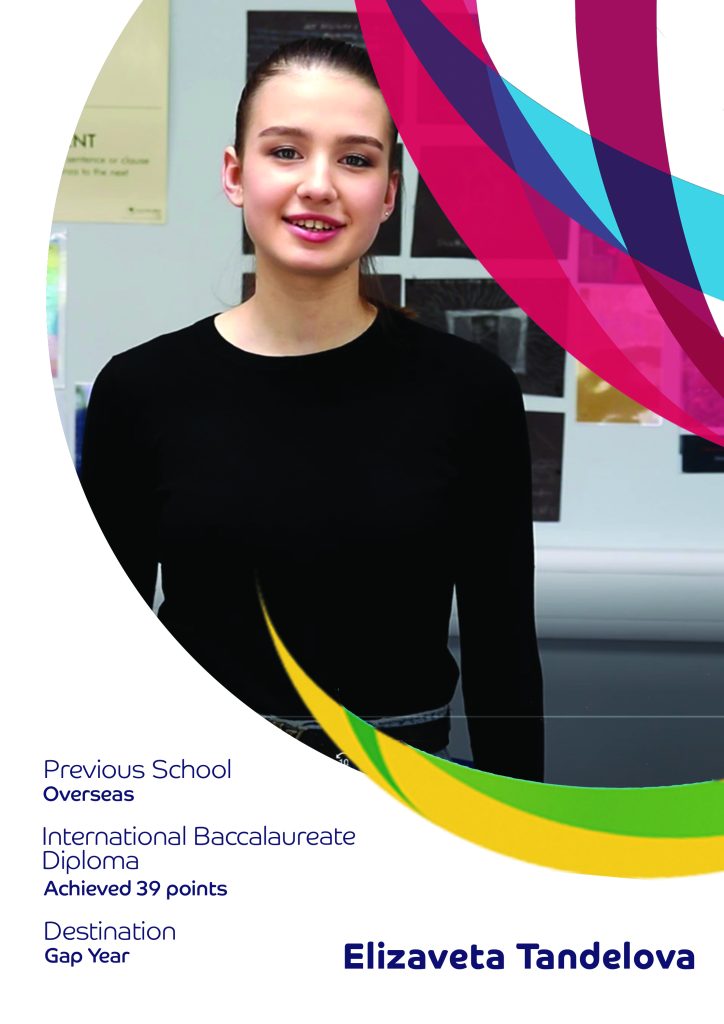
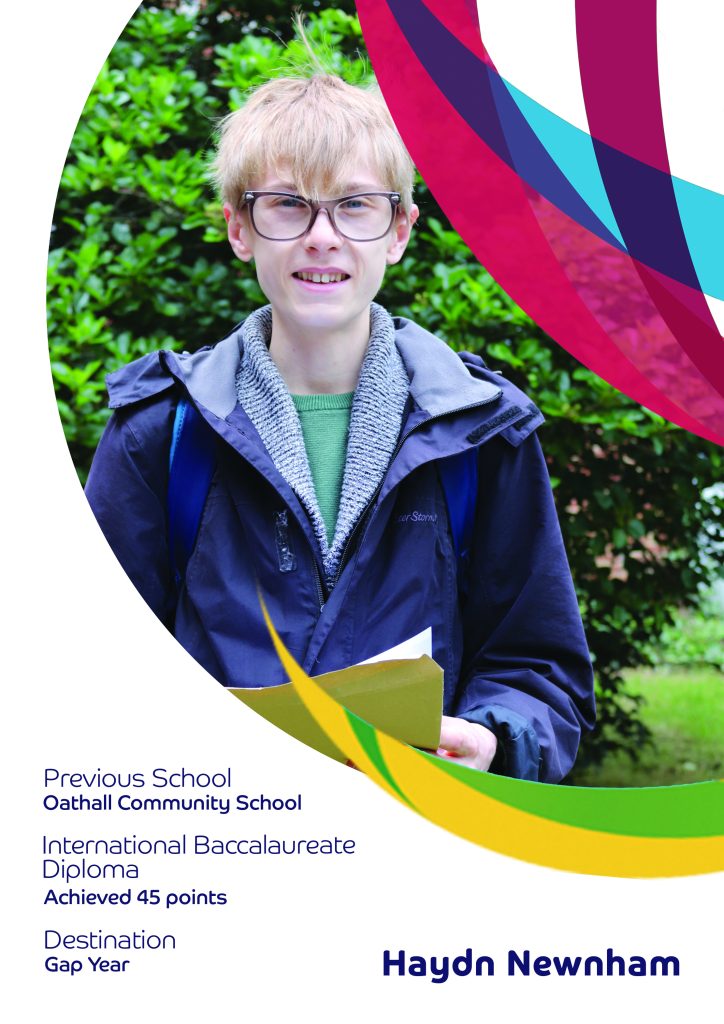
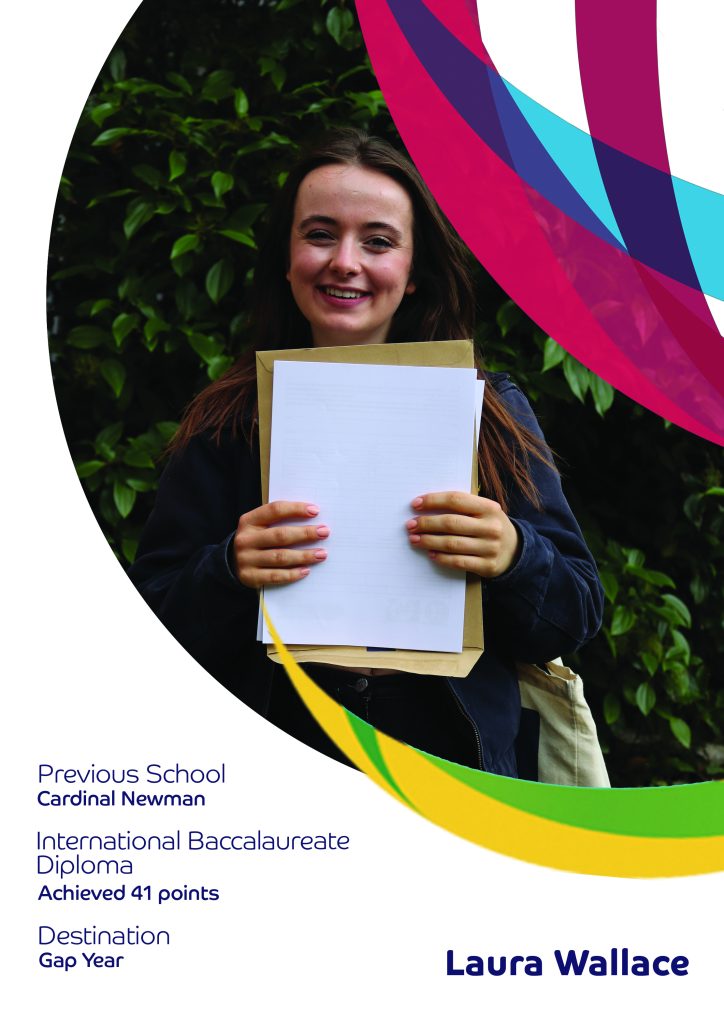
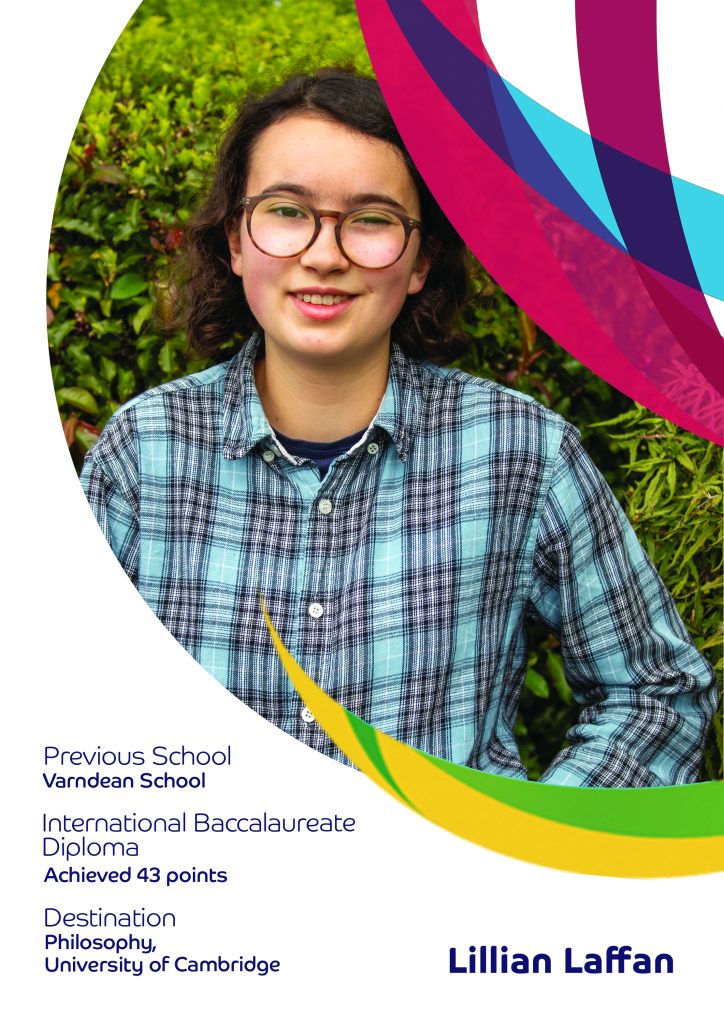
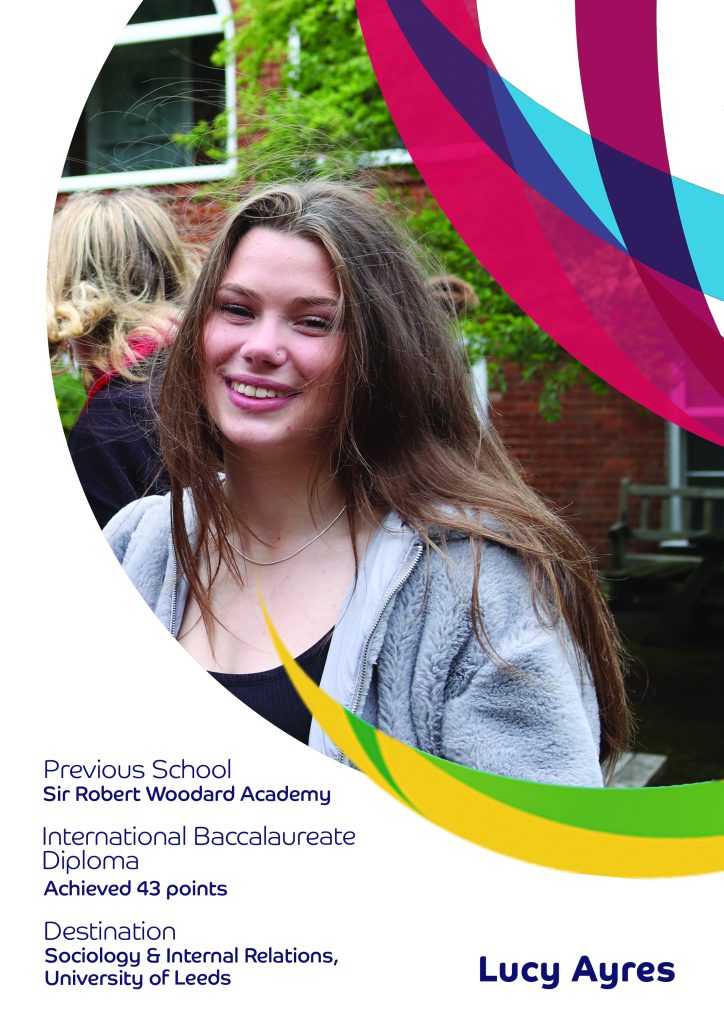
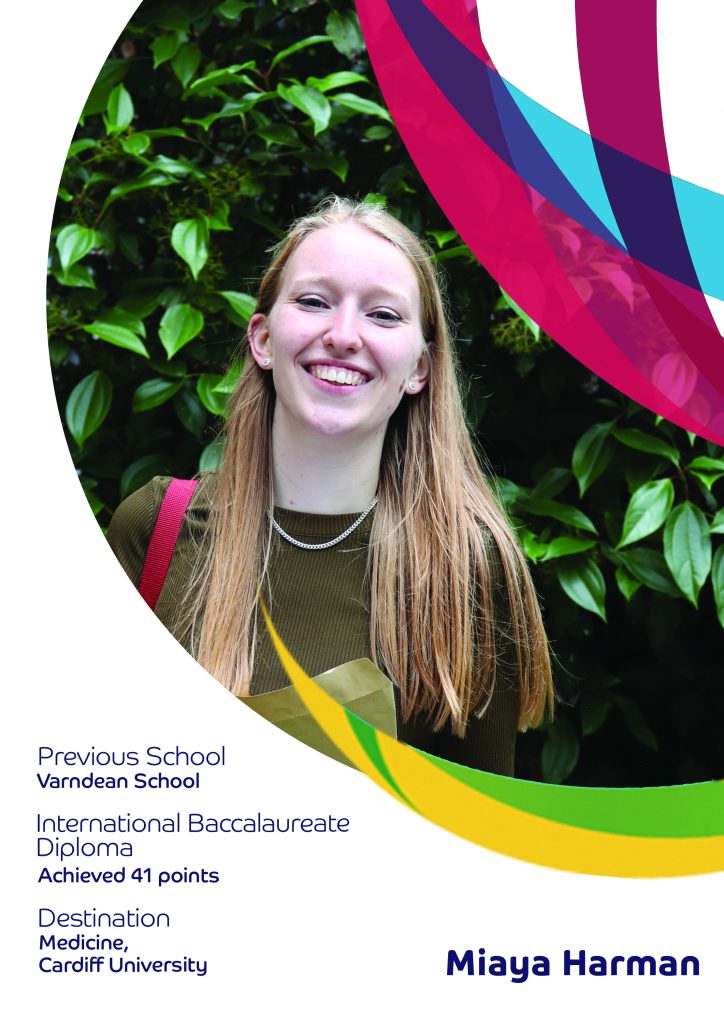
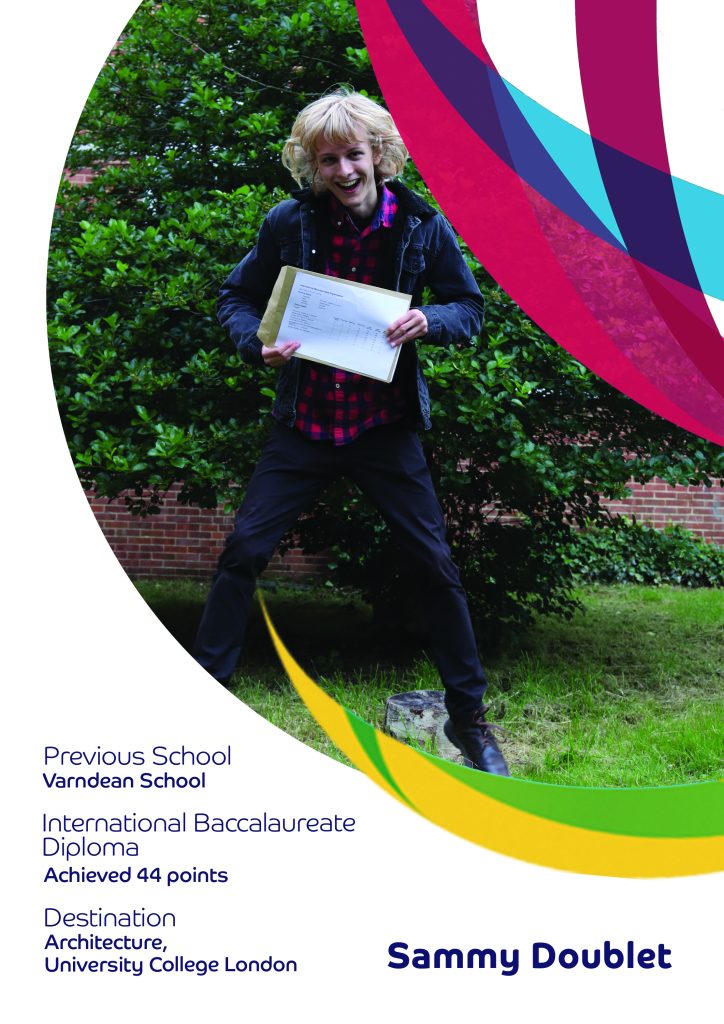
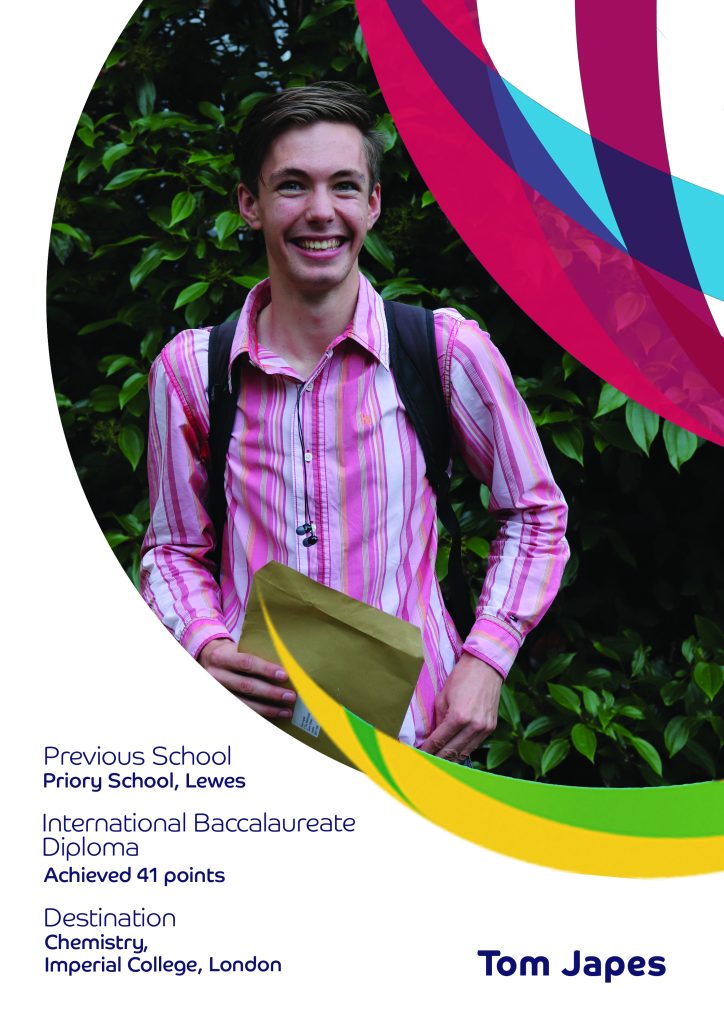
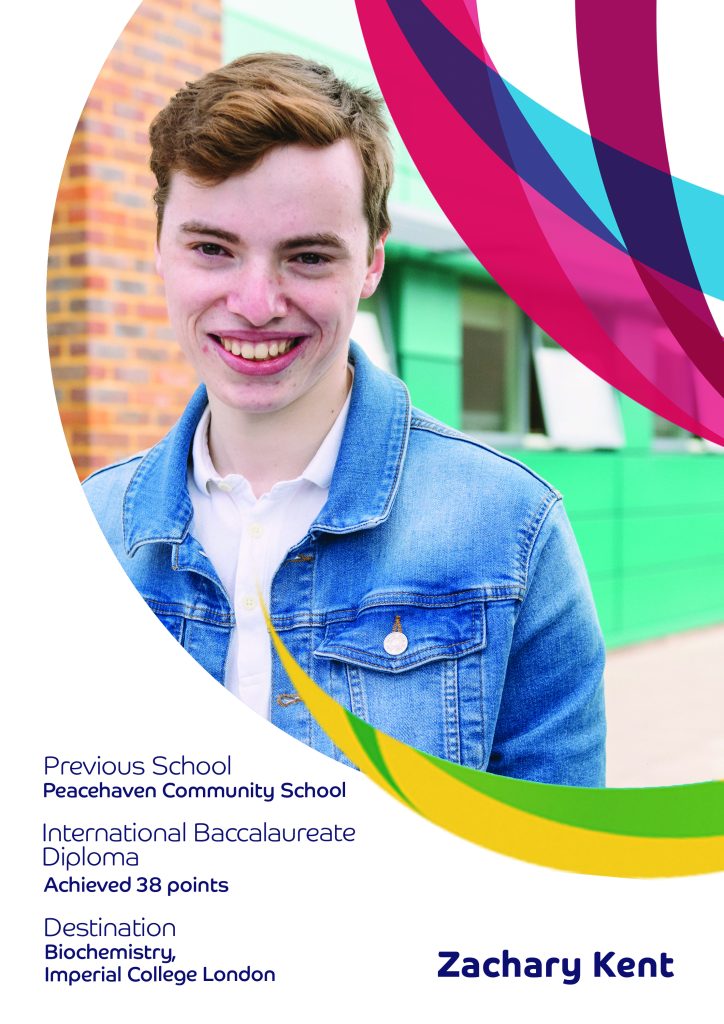
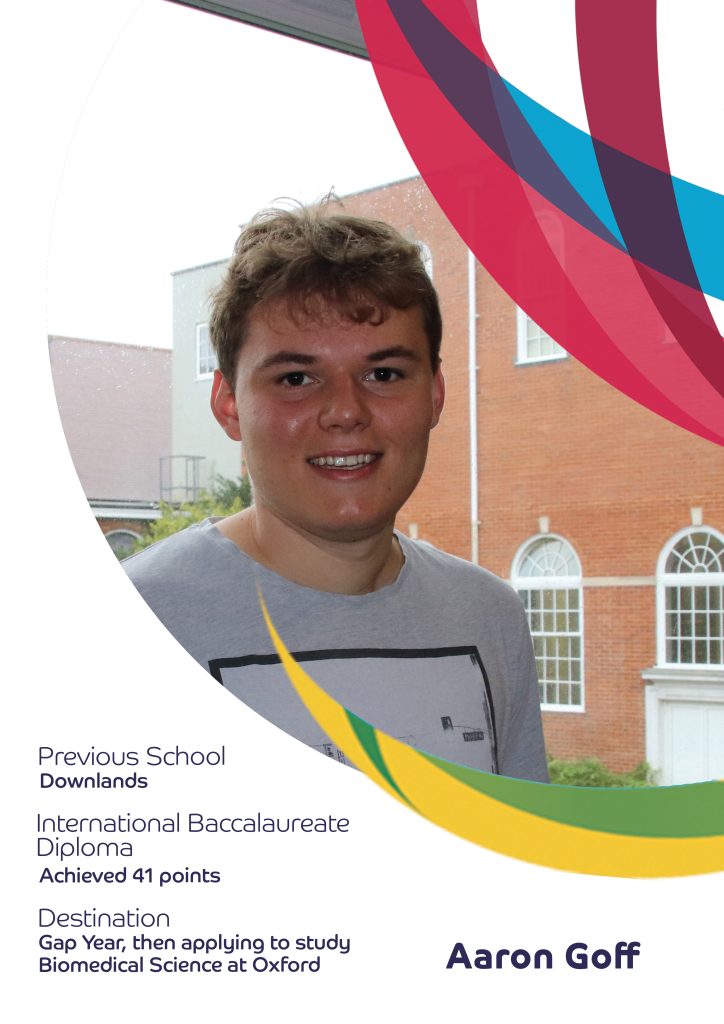
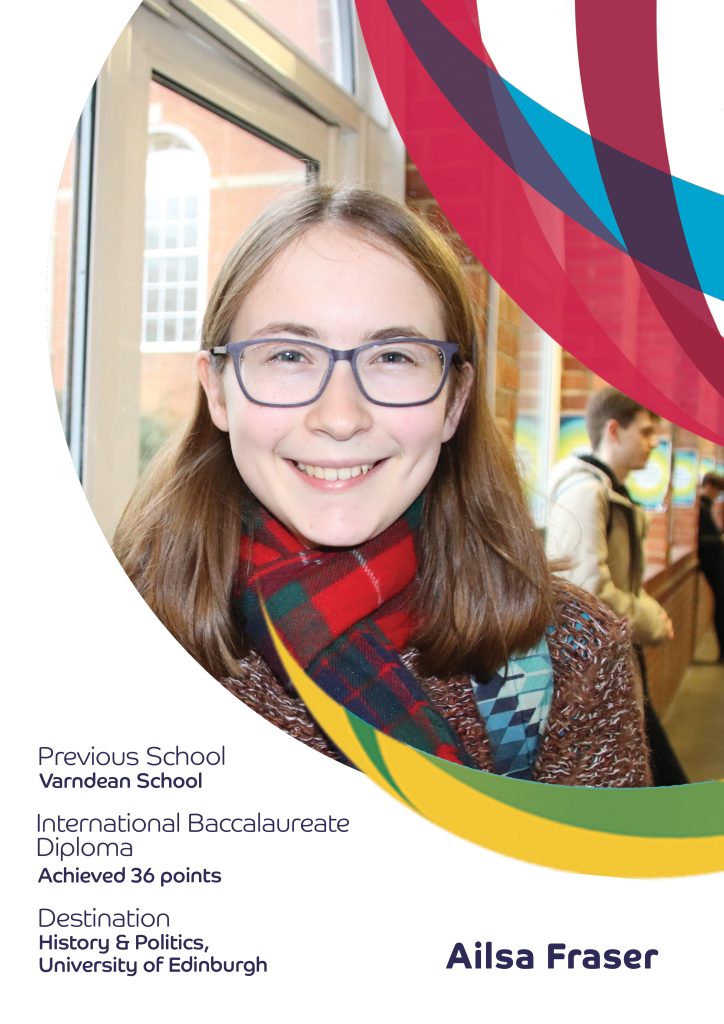
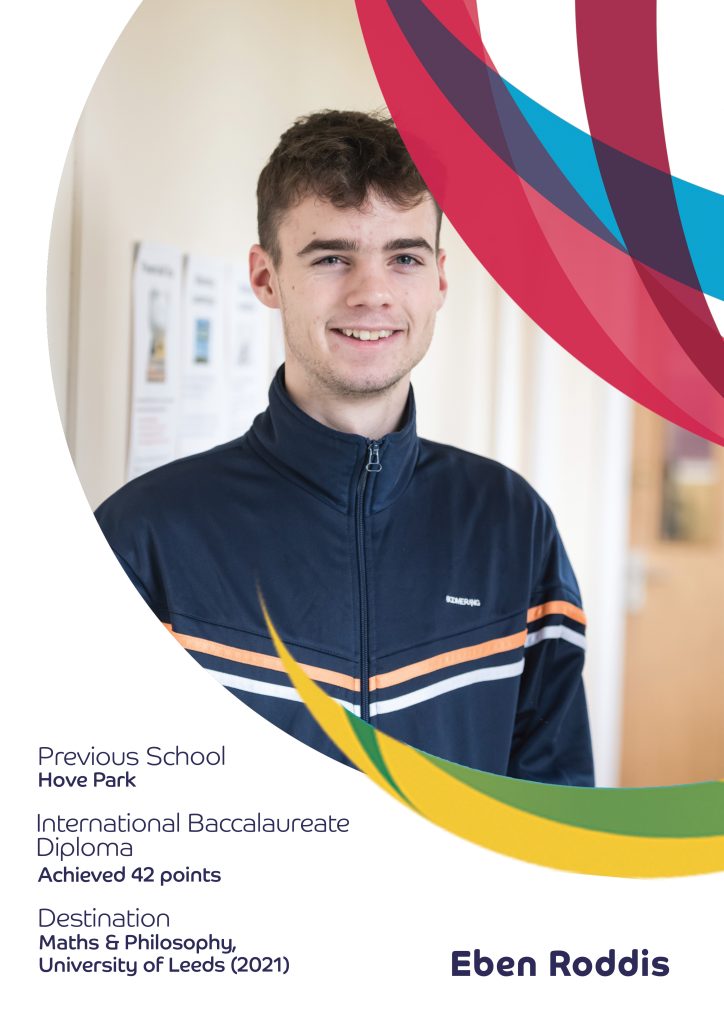
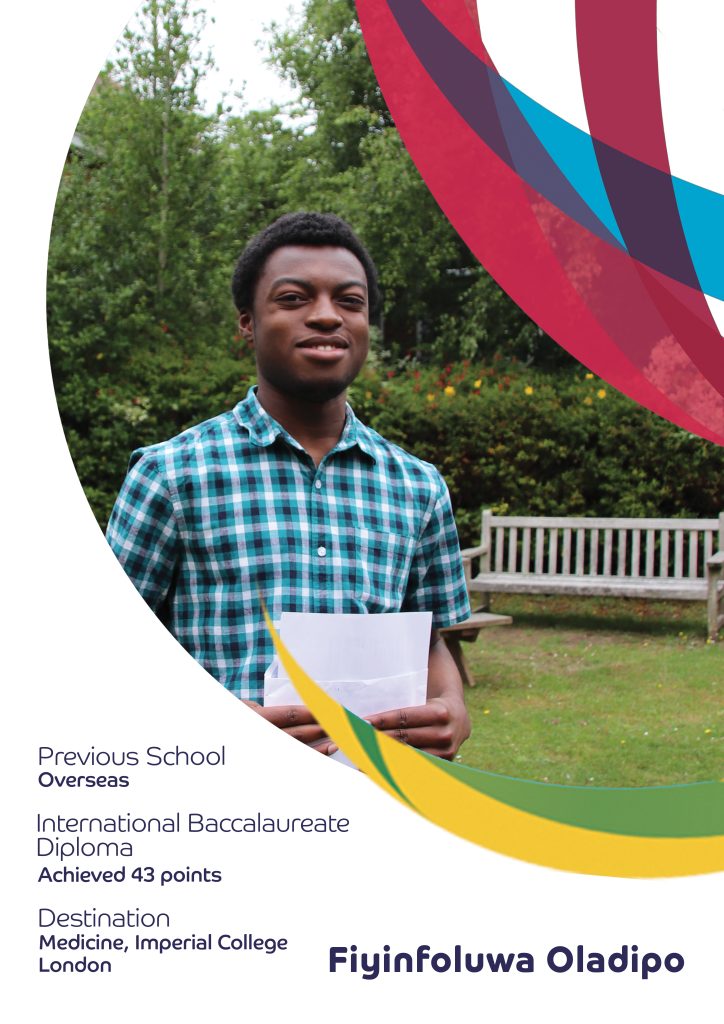
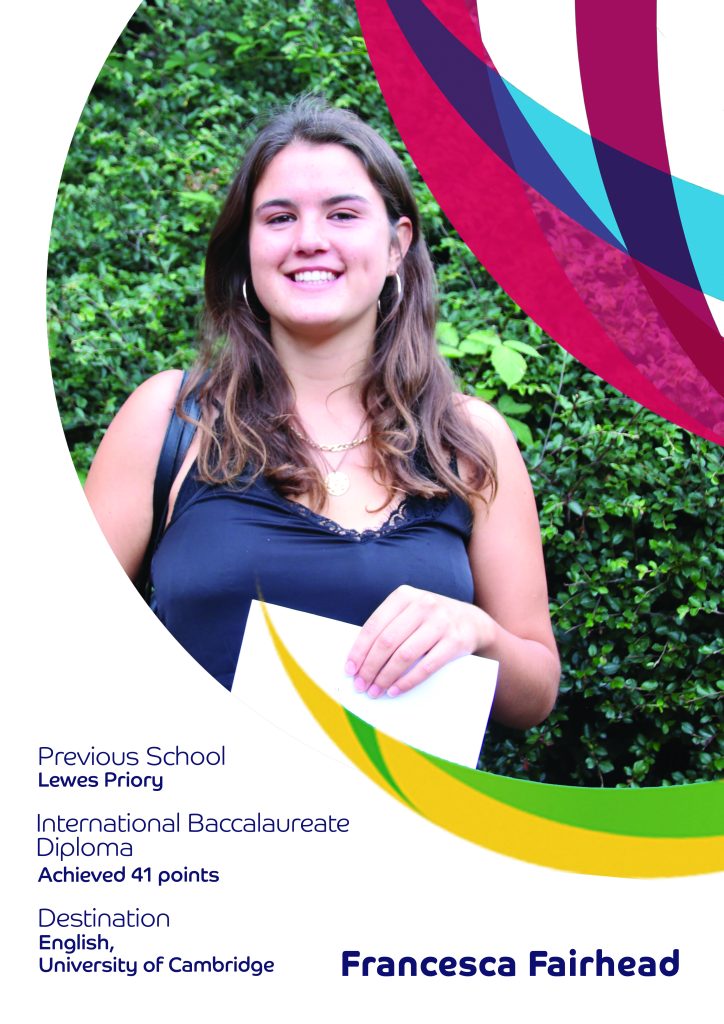
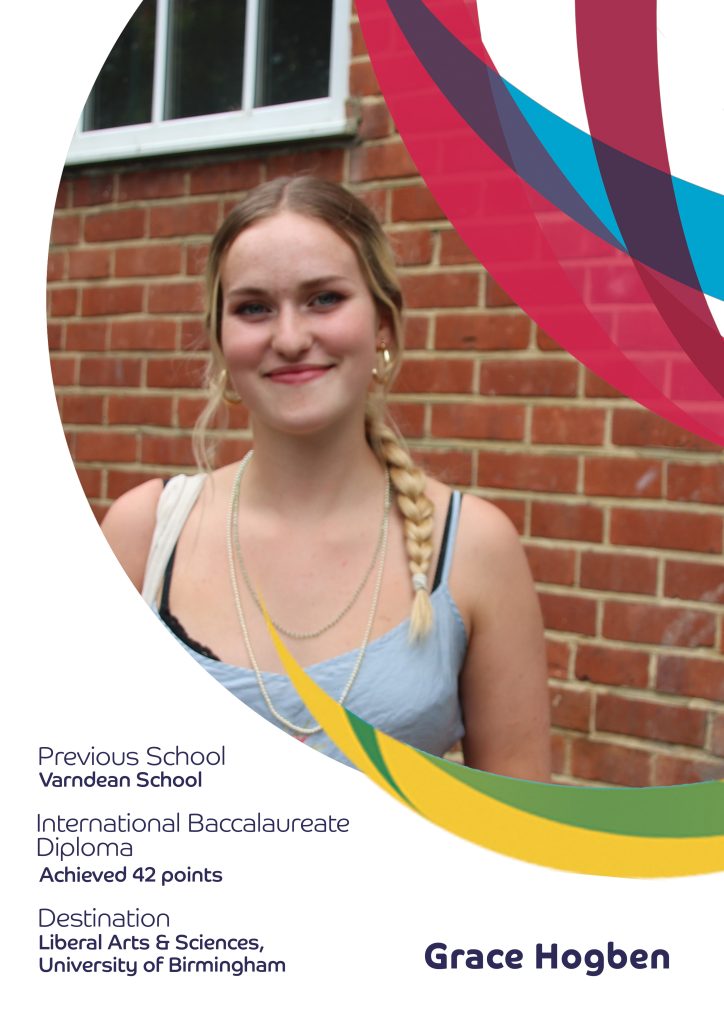
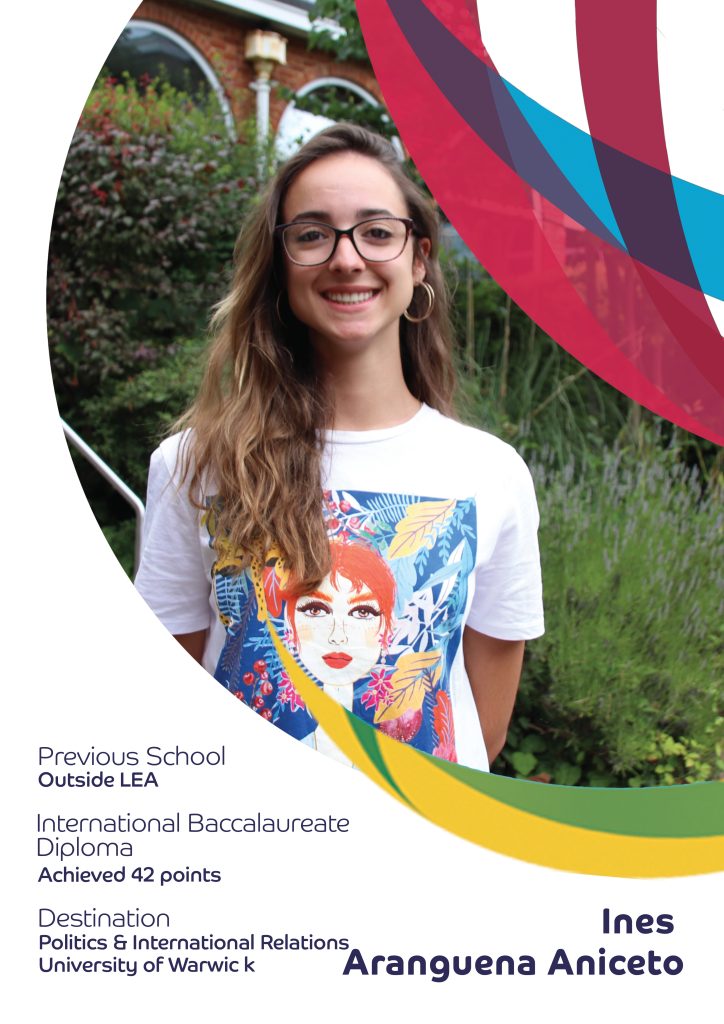
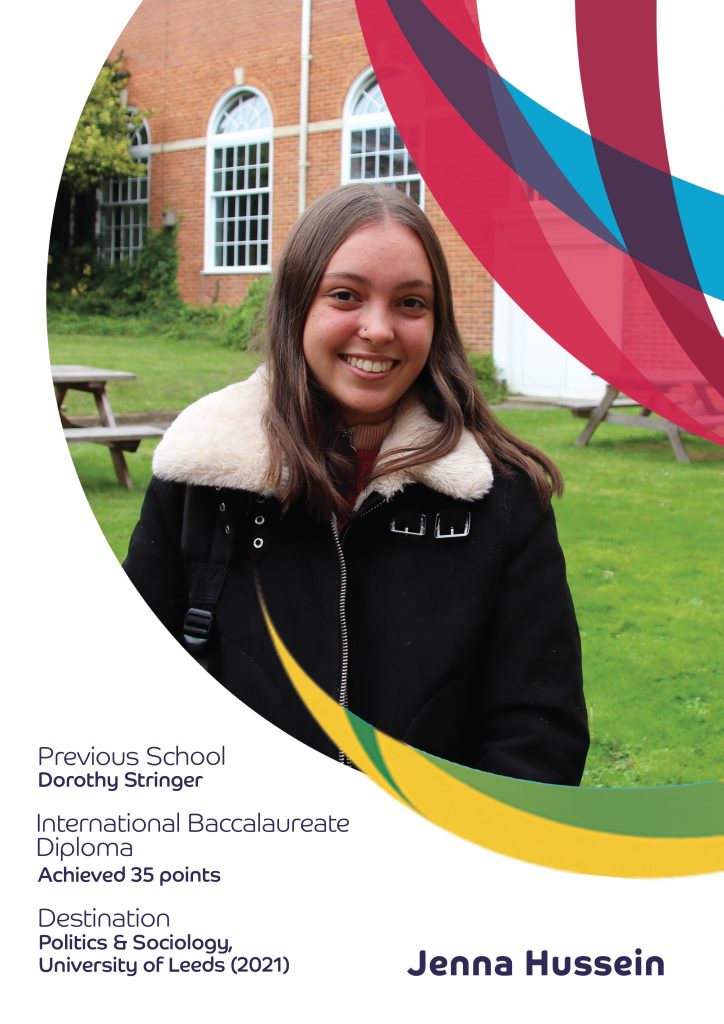
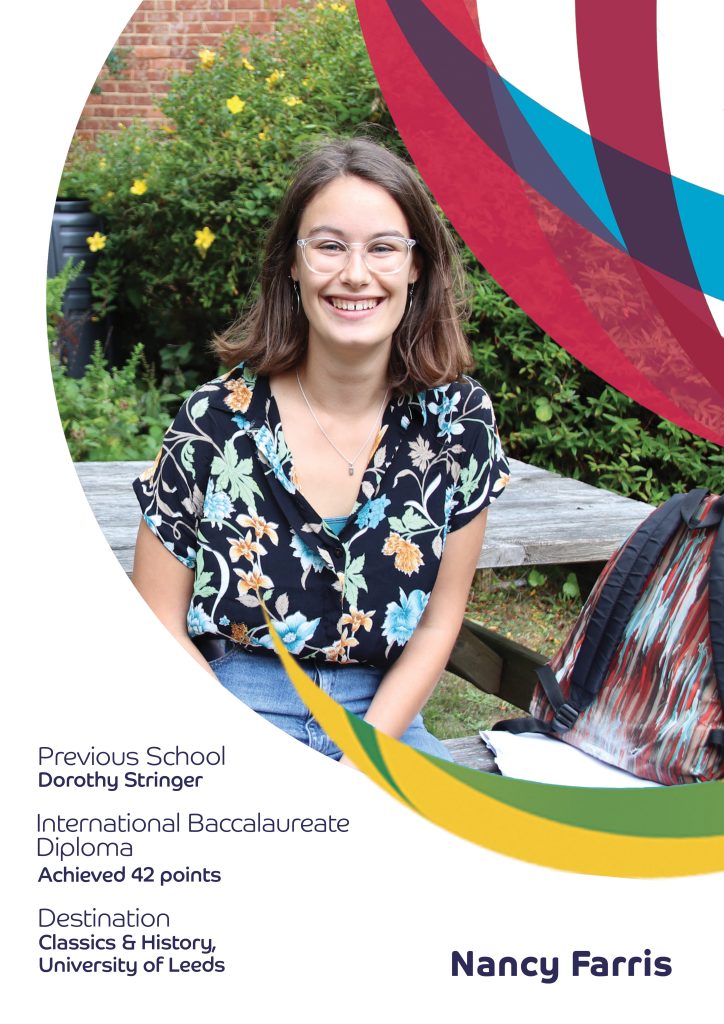
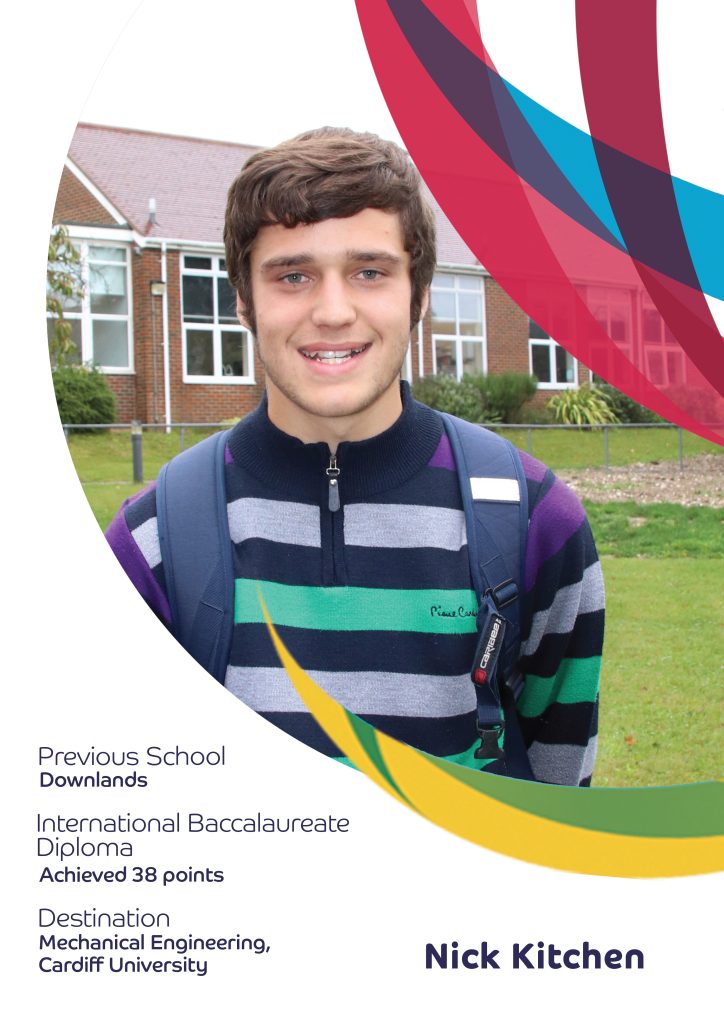
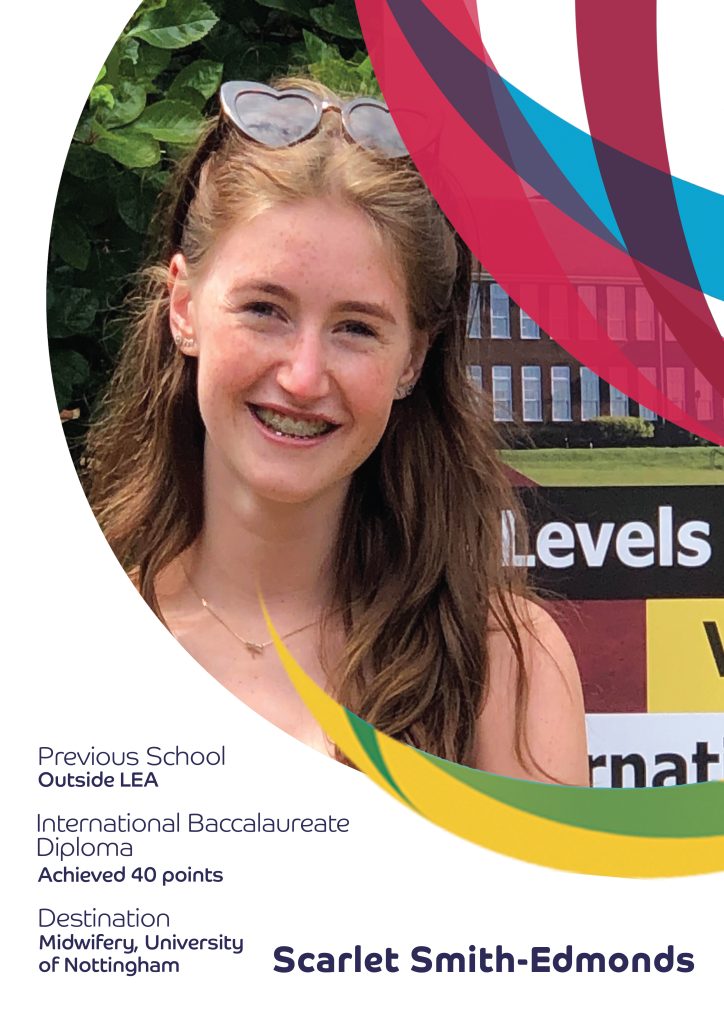
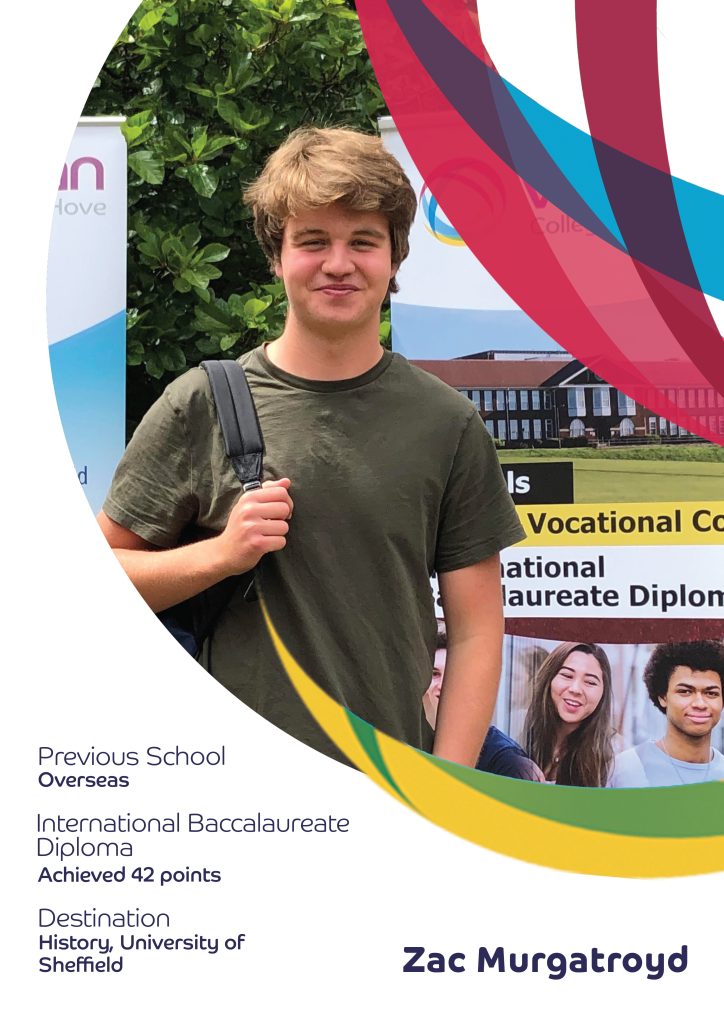
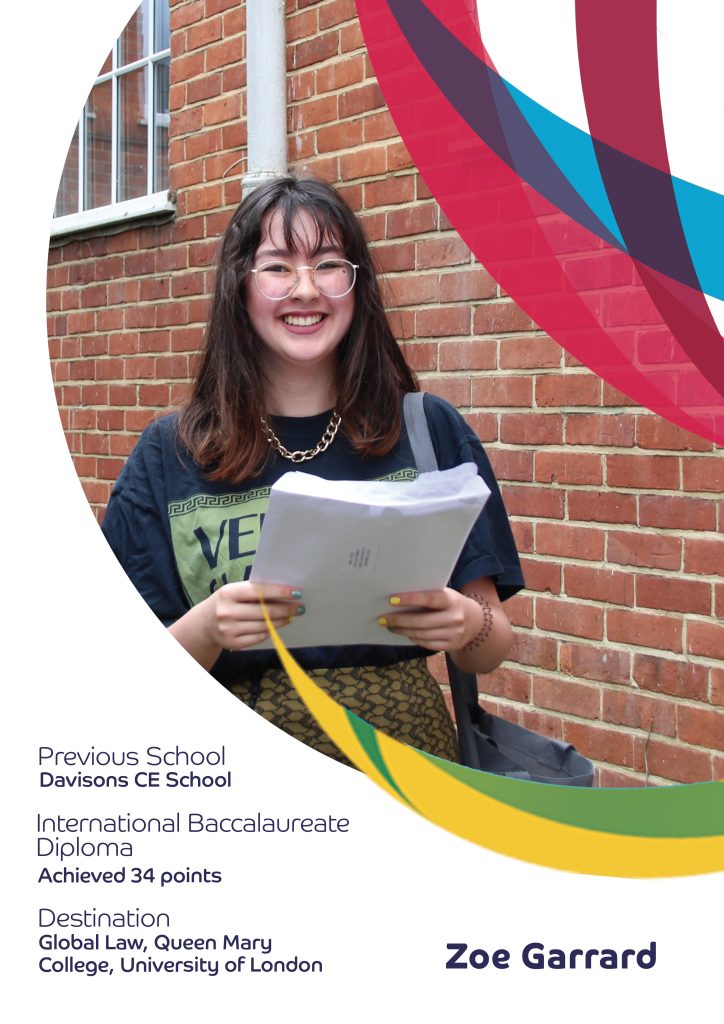
Destinations – Where do students go after the IB?
2024
79% of students applied to UCAS with 71% of successful applicants securing a place at a Russell Group University including 4 Oxbridge.
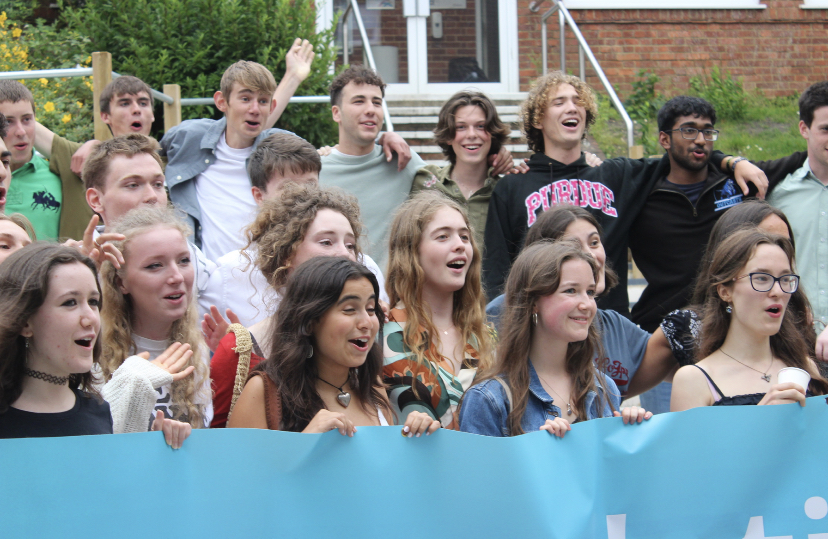
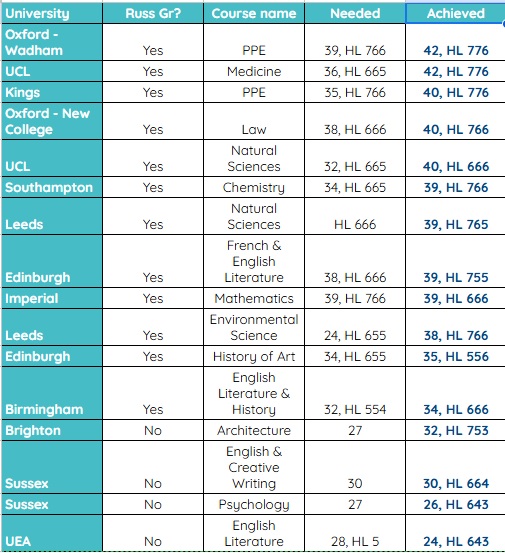
Click below to meet some of our IB Alumni
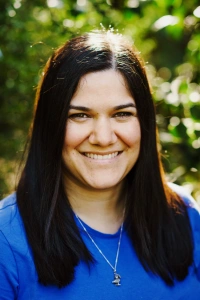
Natasha, Class of 2011
- My favourite thing about the IB: The variety and international focus of the whole curriculum. It felt like I was broadening my horizons beyond the occasionally narrow scope of British education.
- University experience: University didn’t feel like a dramatic step up. The extended essay component helped to give me the skills to pursue my academic areas of interest independently and gave me the confidence to pursue education outside of lesson plans.
- The IB’s impact on my career: The IB gave me a wider base of knowledge than I would have had otherwise and that's meant I can hold my own in conversations with people across a variety of bizarre niches. As a comedy writer, being able to draw on such a variety of extra knowledge is always useful for writers rooms and joke writing. It also means that if I ever decide to have a dramatic career change later in life, I've got a wider choice of which direction to go in!

Sam, Class of 2013
- University & Postgraduate Study: The International Baccalaureate at Varndean set me up perfectly for University and postgraduate study. The course promoted independent thought and strong organisational skills that are invaluable in later studies.
- Varndean Experience: Varndean is a unique college - it really feels like a stepping stone between school and university. The teachers are fantastic and treat you like adults. The campus-feel of Varndean was lovely, particularly in the summer when we regularly revised outside in the quads.
- Friendships & Diversity: I made life-long friends during my time on the IB. Our tight-knit group supported one another throughout the 2-year course. I also really personally valued the inclusivity and diversity of the course. My fellow students came from all walks of life and from all over the world.
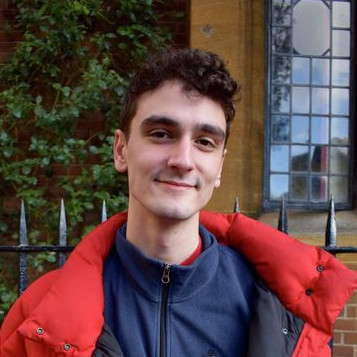
Jake, Class of 2015
- What I loved most about the IB: Getting to study a breadth of subjects instead of having to specialise so early on in education. We were encouraged to see the benefits of interdisciplinarity and bringing critical perspectives into our thinking, reading and writing across the curriculum. This was particularly helpful for studying Human, Social, Political Sciences at university, where being able to critically engage with all the texts I encountered was key.
- The IB’s impact on university: The breadth of knowledge I acquired from the IB was also a specific point of support for me at uni. I would say that it helped to bridge the gap between a low-income, state school, first-generation student such as myself and other students who had the benefits of private education and parents who were educated to university level.
- Friendships & Career Path: I am still close with several friends from the IB. One of them I went to university with and then even worked with at the same international PR and public affairs agency after graduating.
- Current Role: Currently, I work at a responsible investment NGO, and I can see how the IB has informed the interests that led me here. What excites me about the work I do is looking at the intersection between political, economic, social and cultural contexts, and how an understanding of this can be used to challenge and reshape the financial sector to better meet human and environmental needs. This interdisciplinarity and critical perspective required to do this seems to me like a typically IB approach to thinking about the world.
The IB Diploma Core: An Overview
The International Baccalaureate (IB) Diploma Programme (DP) Core is an essential part of the IB Diploma. It encourages students to develop key skills and qualities beyond their subject studies.
The Core consists of three interconnected components:
- Extended Essay (EE) – A self-directed research paper.
- Theory of Knowledge (ToK) – A critical thinking course that explores how we know what we know.
- Creativity, Activity, Service (CAS) – A programme fostering personal growth through experiential learning.
Each component is designed to challenge students academically and personally, developing skills such as research, reflection, and global awareness. The Core contributes up to 3 additional points towards the final IB Diploma score.
Theory of Knowledge (ToK)
The Theory of Knowledge course challenges students to reflect on the nature of knowledge, exploring different perspectives and how knowledge is constructed.
- Develops critical thinking and questioning skills.
- Encourages students to consider Ways of Knowing (e.g., reason, emotion, language).
- Examines Areas of Knowledge (e.g., natural sciences, history, ethics).
ToK Exhibition
Students select three objects and connect them to one of 35 prescribed IA prompts, producing a poster presentation exploring how ToK concepts apply to the real world. Assessed internally and externally moderated.
ToK Essay
A 1,600-word formal essay responding to one of six prescribed titles set by the IB, assessed externally by IB examiners.
Marking
Graded A-E: Exhibition: 33% of the final ToK score, Essay: 67% of the final ToK score.
Extended Essay (EE)
The Extended Essay is an independent, self-directed research project, culminating in a 4,000-word paper. It allows students to explore a topic of interest within one of their IB subjects.
Students are assigned a supervisor who provides feedback and support throughout the research and writing process. Regular meetings help refine research questions, structure the essay, and ensure progress.
- Topic must be related to an IB subject.
- Maximum word count: 4,000 words.
- Includes a research question, analysis, and conclusion.
- Requires three reflections, recorded in the Reflections on Planning and Progress Form (RPPF).
Marking
The EE is graded A-E and is assessed by an IB examiner, based on:
- Focus and method (6 points)
- Knowledge and understanding (6 points)
- Critical thinking (12 points)
- Presentation (4 points)
- Engagement (reflection process) (6 points)
Creativity, Activity, Service (CAS)
CAS is a compulsory, non-graded component of the IB Core that encourages students to develop personal and interpersonal growth through experiential learning.
- Continuous involvement in CAS experiences for at least 18 months.
- A balanced mix of Creativity, Activity, and Service.
- Students must document reflections and show evidence of learning.
Project Aspect
At least one CAS project lasting a minimum of one month. It should involve collaboration and demonstrate initiative. Examples include organizing a charity fundraiser, coaching a sports team, or creating a community art project.
Learning Objectives
Students must demonstrate:
- Initiative & planning – Setting and working toward goals.
- Collaboration – Working effectively with others.
- Perseverance & commitment – Showing dedication to a project.
- Personal growth – Developing skills and self-awareness.
- Global awareness – Understanding ethical and social responsibilities.
Typical Student Timetables
HL Subjects have ten 45 minute periods per week distributed across the two years
SL Subjects have six 45 minute periods per week across the two year.
The benefit of this is that teaching staff can plan their curriculum across the two years according to student need. This does however mean that some subjects have more or less content in year 1 than year 2 and as a result each student timetable is unique to them.
To help applicants visualise how this might work we have included a few model timetable, one for students focusing on Humanities HLs and one for STEM HL’s.
Hover over the timetable to see the spread of lessons, and any white space is a study period for learners to focus on homework, consolidation, coursework and revision. This time does not have to be spent at College but many of our students use the Library during these times to complete this work.




FAQ
How can I find out more about the subjects and content I would be learning?
Read the IB’s Subject Briefs and Subject Guides on this page
What is the Learner Profile?
The IB educates the whole person, intellectually, morally and emotionally and the IB learner profile plays an important part in this, featuring all of the skills and qualities the Diploma aims to teach and develop in its learners during the two years.
These qualities are nurtured explicitly via specifications, subject content and assessment, or sometimes more implicitly via the teaching and learning methods our trained and experienced IB teachers employ in the classroom. The Core and Tutorial programme also play an impotent role in developing these skills.
What grades do I need to study on the IB?
A mixture of at least 7 GCSEs at Grade 6 or above, including English, Maths and Science. In addition, certain subjects at both Standard and Higher Level have particular subject requirements. For further information please refer to our separate IBD Prospectus.
What sort of grades do students achieve on the IB at Varndean?
Our average point score is between 34 and 36 and around one third of our students achieve 40 points or more making us one of the top of the sixth form and state school IB providers in the UK
I have read something about needed a specific calculator as an IB student. Which one do I need?
All IB students need a Graphical Display Calculator in order to complete the maths course regardless of type or level.
The calculator we suggest students purchase is a Casio FX-CG50. It represents the best value for money and functionality.
Please speak with your teacher before buying any other model as many are banned by the IB.
Your teacher will teach you how to use it, and can support you in finding ways to purchase it a little cheaper.
Do UK Universities accept the IB?
The Diploma is recognised by more than 170 UK universities
For the most up to date requirements its best to visit https://www.ucas.com and search for your preferred degree course and institution
What countries accept the IB around the world?
There are a significant number of universities around the world who accept the IB Diploma as qualification for entry, however every country’s position or requirements are different. Therefore students wishing to study at university abroad should check the country-specific requirements and the entry requirements of individual universities on the IBO website here: https://www.ibo.org/university-admission/find-countries-and-universities-that-recognize-the-ib
Can I take the IB at Varndean if I am studying abroad, and not taking GCSEs?
If you have the right to live and study in the UK then we can discuss your application further. Please email information@varndean.ac.uk to find out more.
Please note that in these circumstances we are likely to ask you to share your last two school reports with us at application, and for you to complete an English, Maths and Science test to better understand your suitability for the programme.
Can I study the IB Diploma as a fee paying international student, living with a host family?
Yes you can. Please visit https://varndean.ac.uk/international to find out more
How does the IB’s mission and philosophy align with Varndean’s?
The IB’s mission is: The IB develops inquiring, knowledgeable and caring young people who help to create a better and more peaceful world through education that builds intercultural understanding and respect. https://www.ibo.org/about-the-ib/mission/
Varndean college’s mission is: TO TRANSFORM THE LIVES OF OUR STUDENTS AND OUR COMMUNITY THROUGH OUR PROVISION OF EXCEPTIONAL EDUCATION.
Our values are:
We inspire academic excellence, high expectations and a thirst for knowledge, developing a curiosity and passion for lifelong learning.
We have a dynamic culture which engages staff and students, celebrates achievement, encourages innovation, and strives for continual improvement.
We enable true social mobility for all student groups providing the environment, support and opportunities that every student needs to succeed in order to narrow gaps within society.
Equality and diversity is at the heart of all we do. We promote understanding and respect for different cultures and communities, in college, locally and globally.
We provide excellent opportunities for enrichment, well-being and pastoral support so that we build resilient, happy and successful students who flourish in life.
Environmental sustainability is at our core, we are committed to carbon literacy, becoming carbon neutral and developing our estate as an area of biodiversity.
We believe in inspirational governance, leadership and management and invest in our staff, empowering a confident, diverse and energised workforce.
We responsibly use public funds and provide value for money to safeguard the financial stability of the College to bring maximum benefit to our local community
Read more about our values here: https://varndean.ac.uk/values/
Courses Available
IB Diploma
IB entry requirements
Seven GCSEs grade 6+
Enquiries To
Lee Finlay-Gray : lzg@varndean.ac.uk

